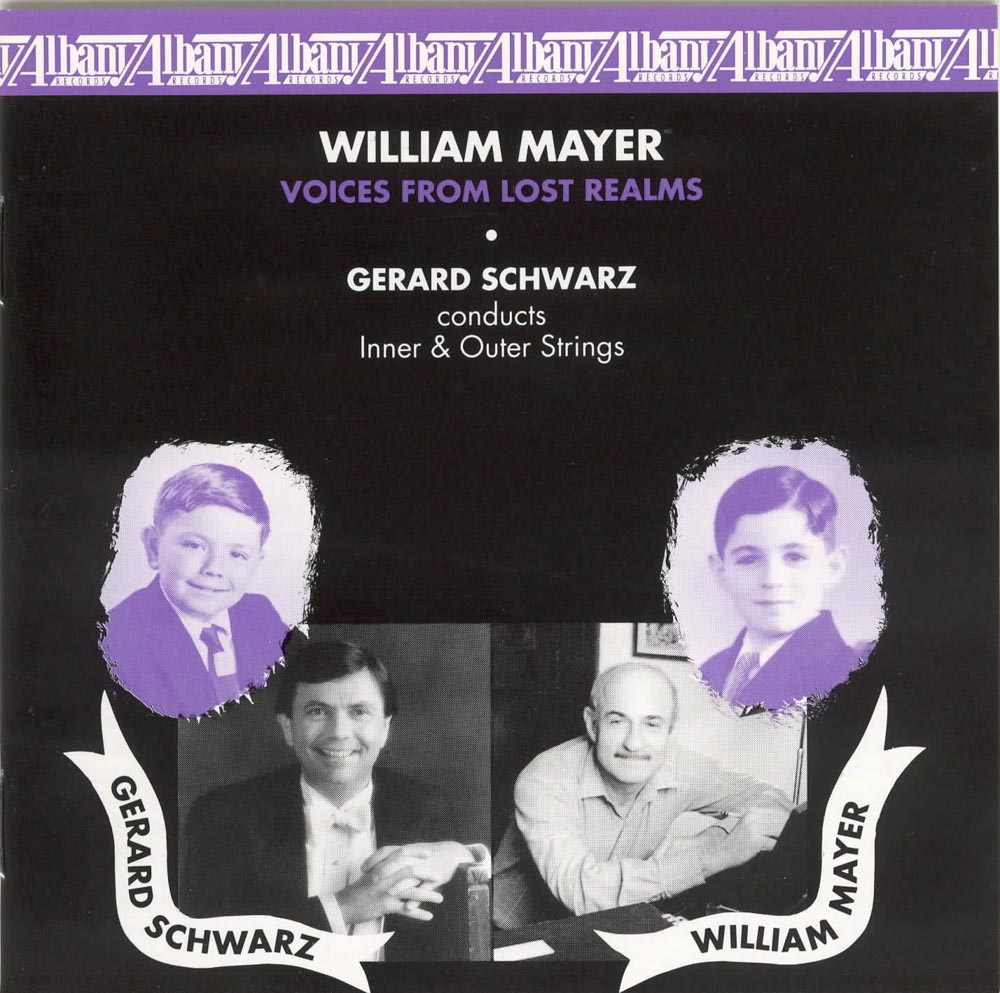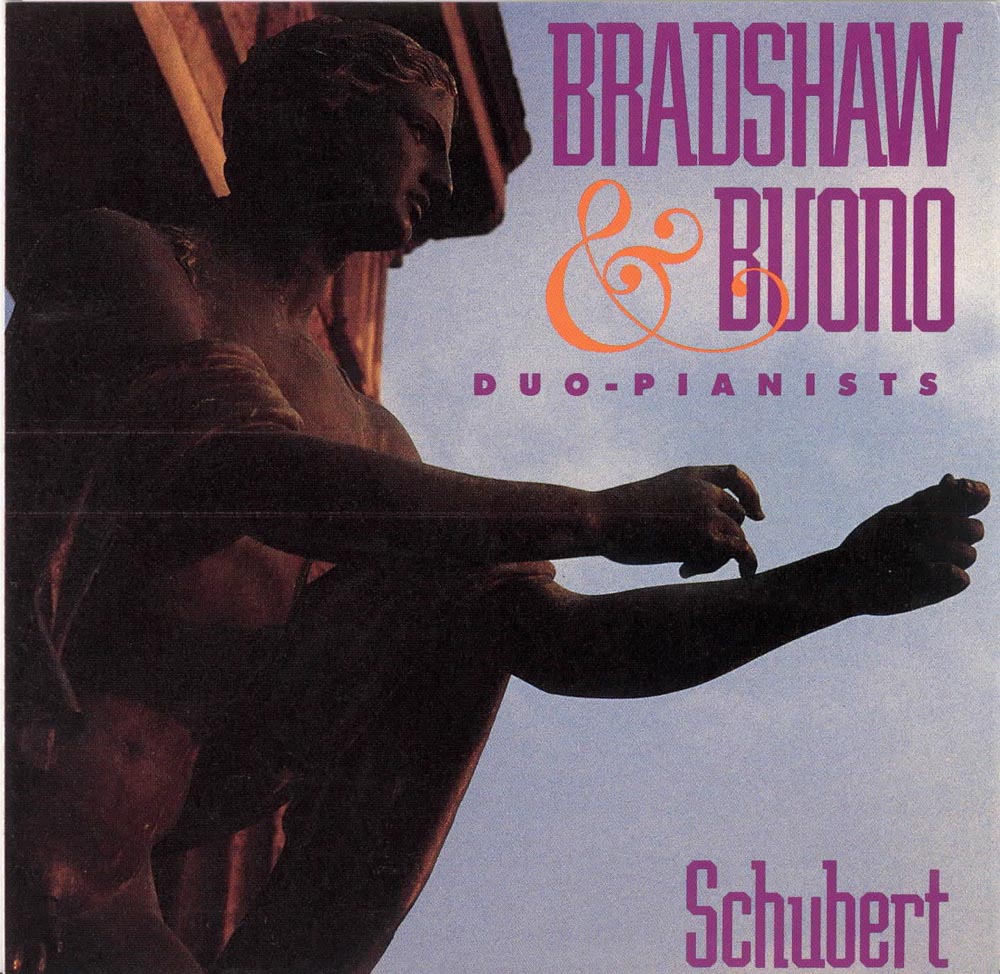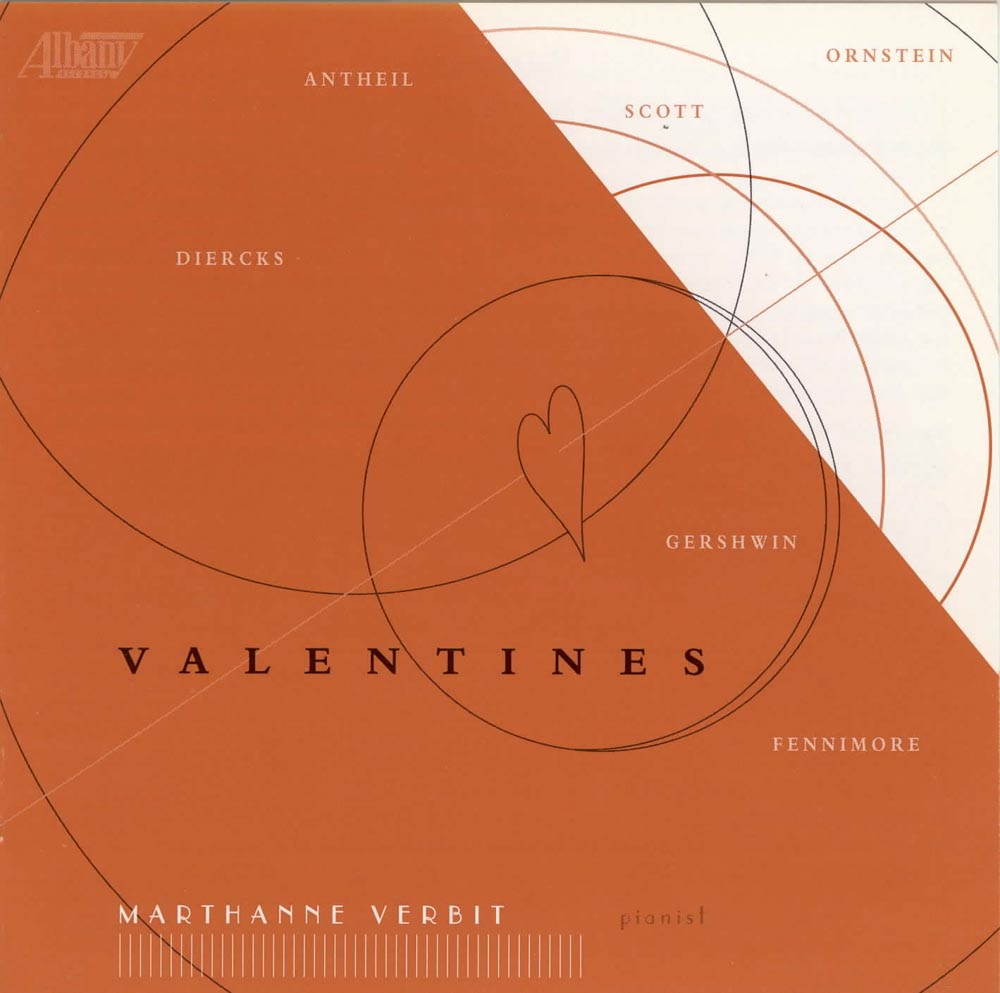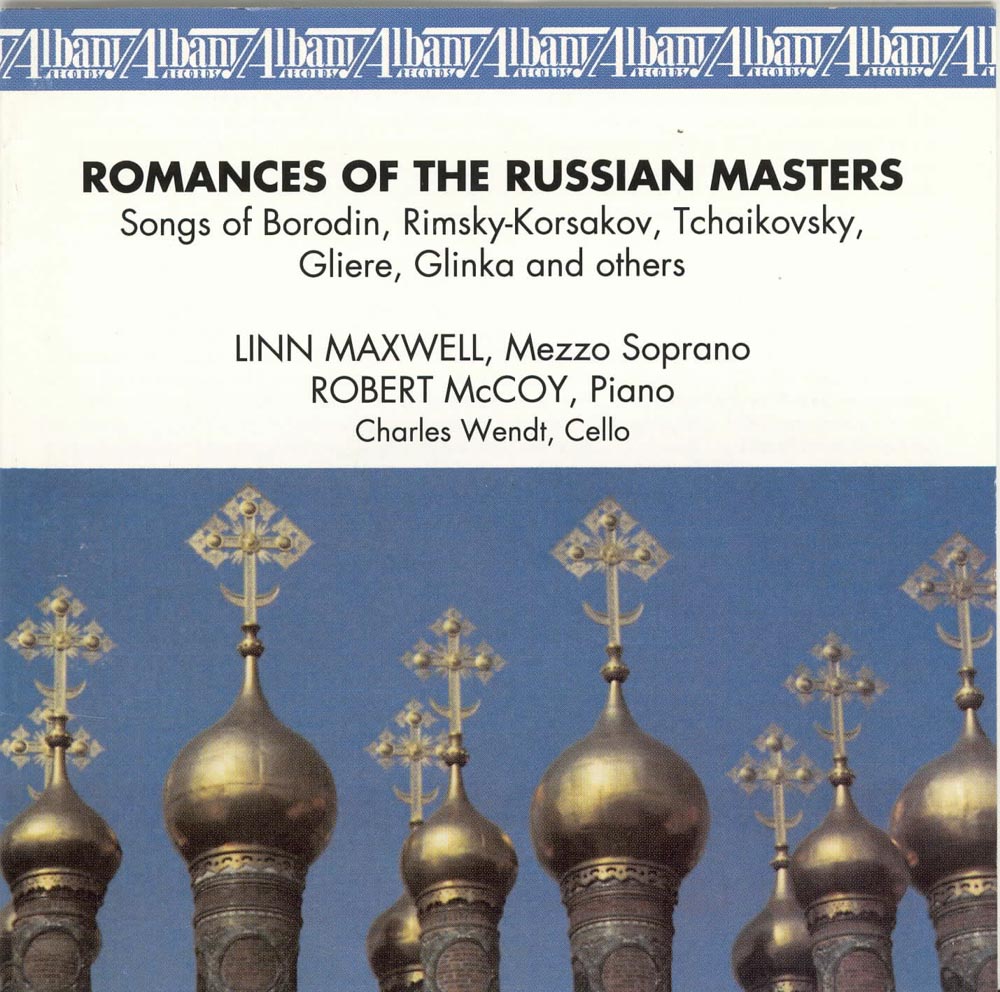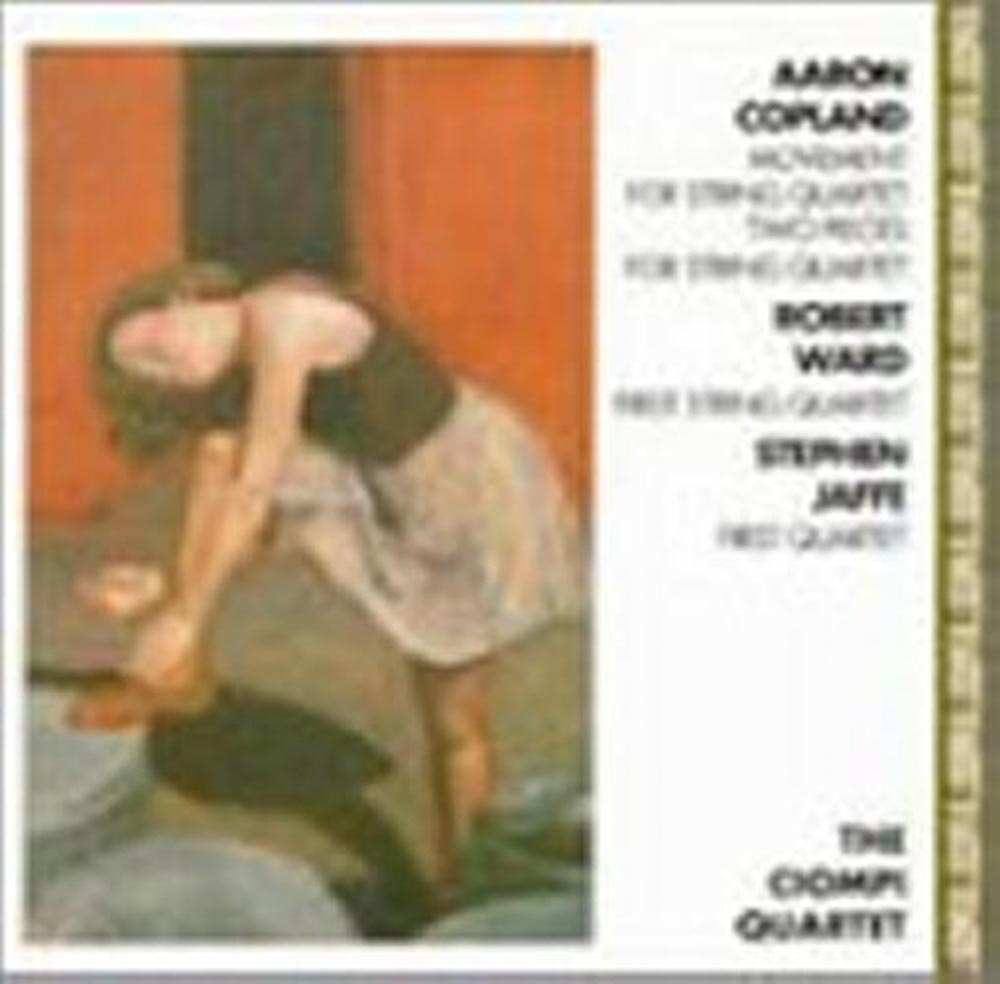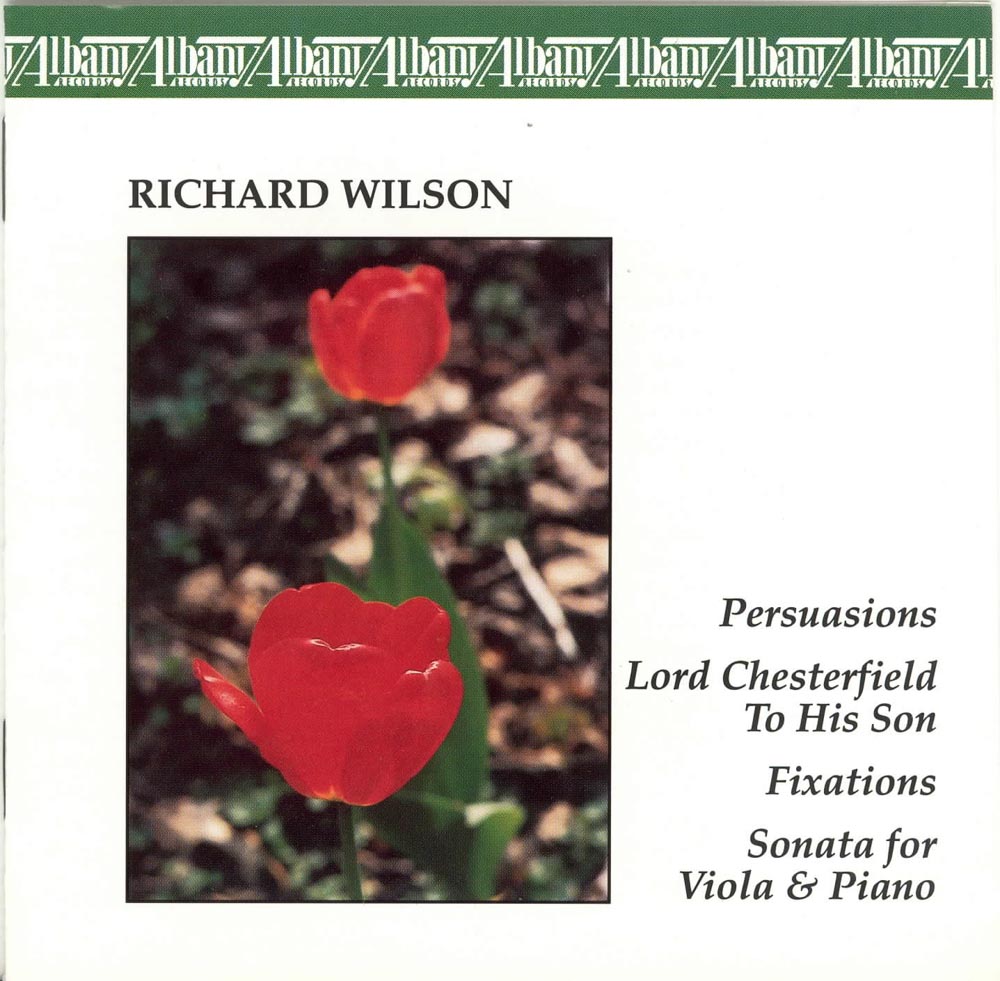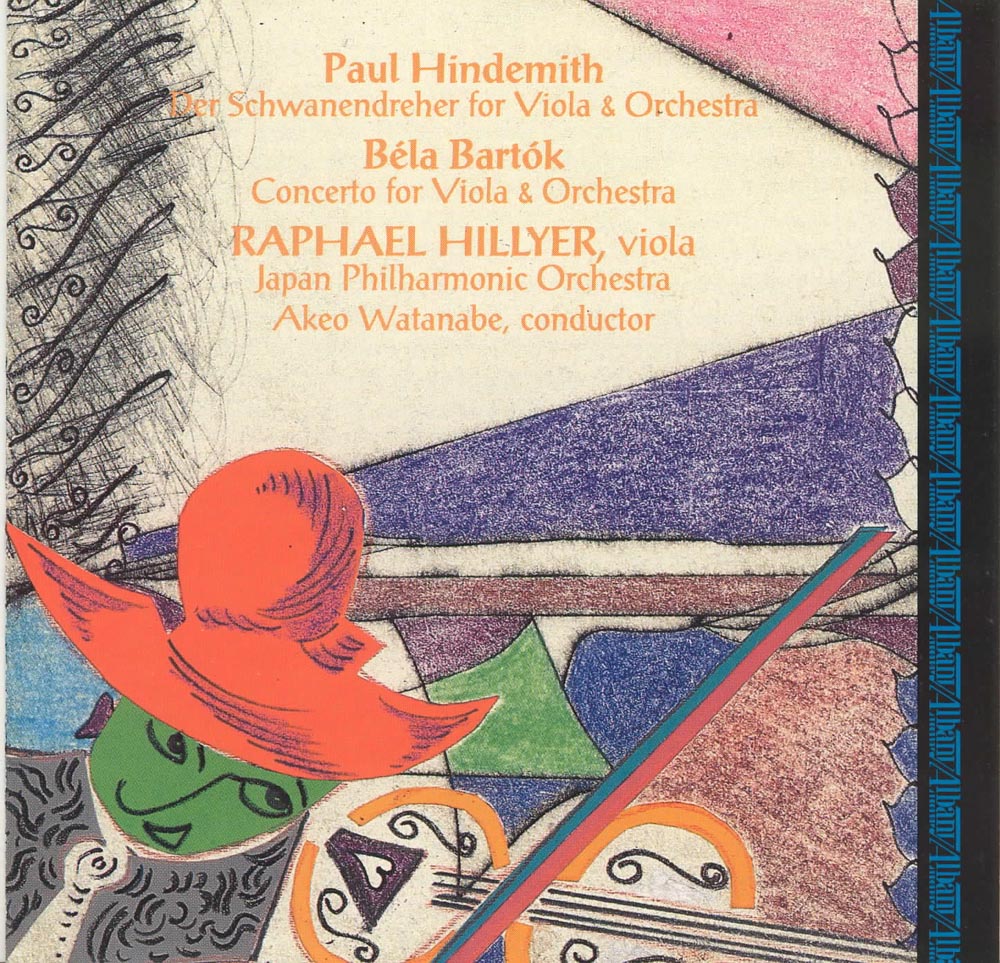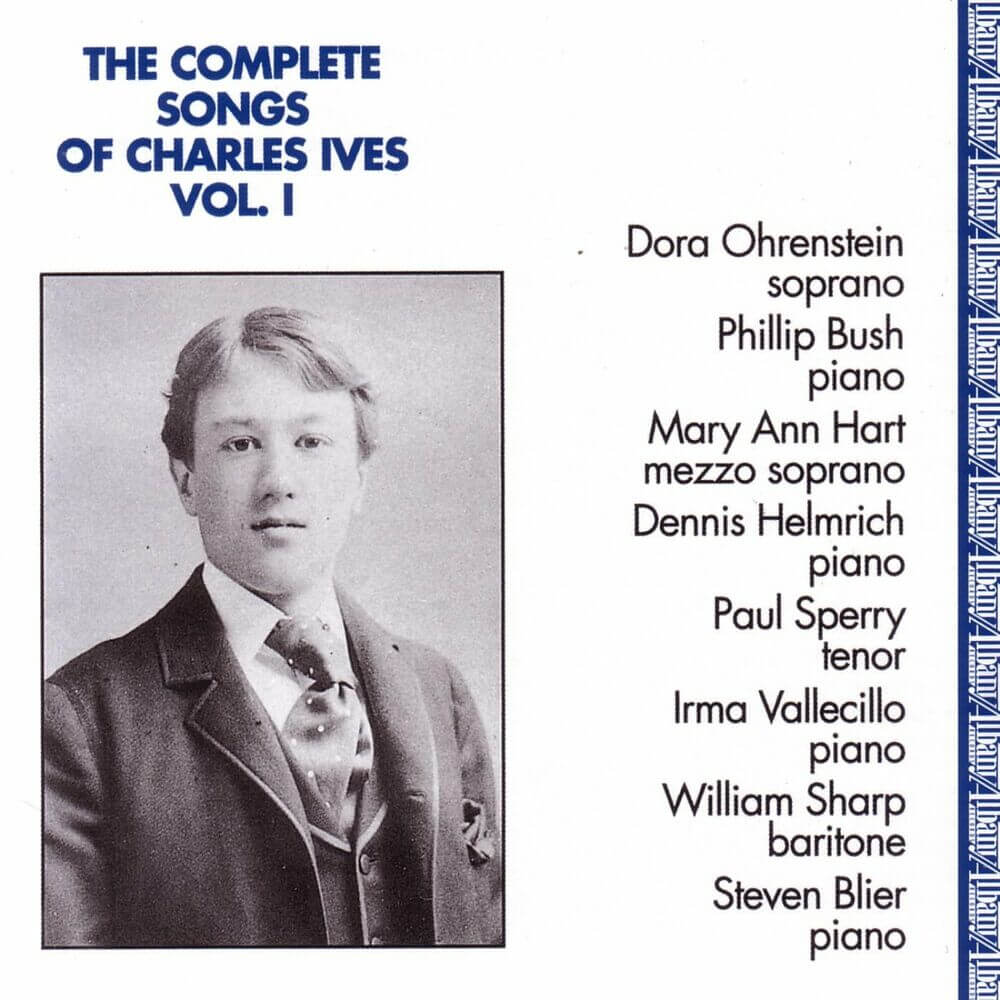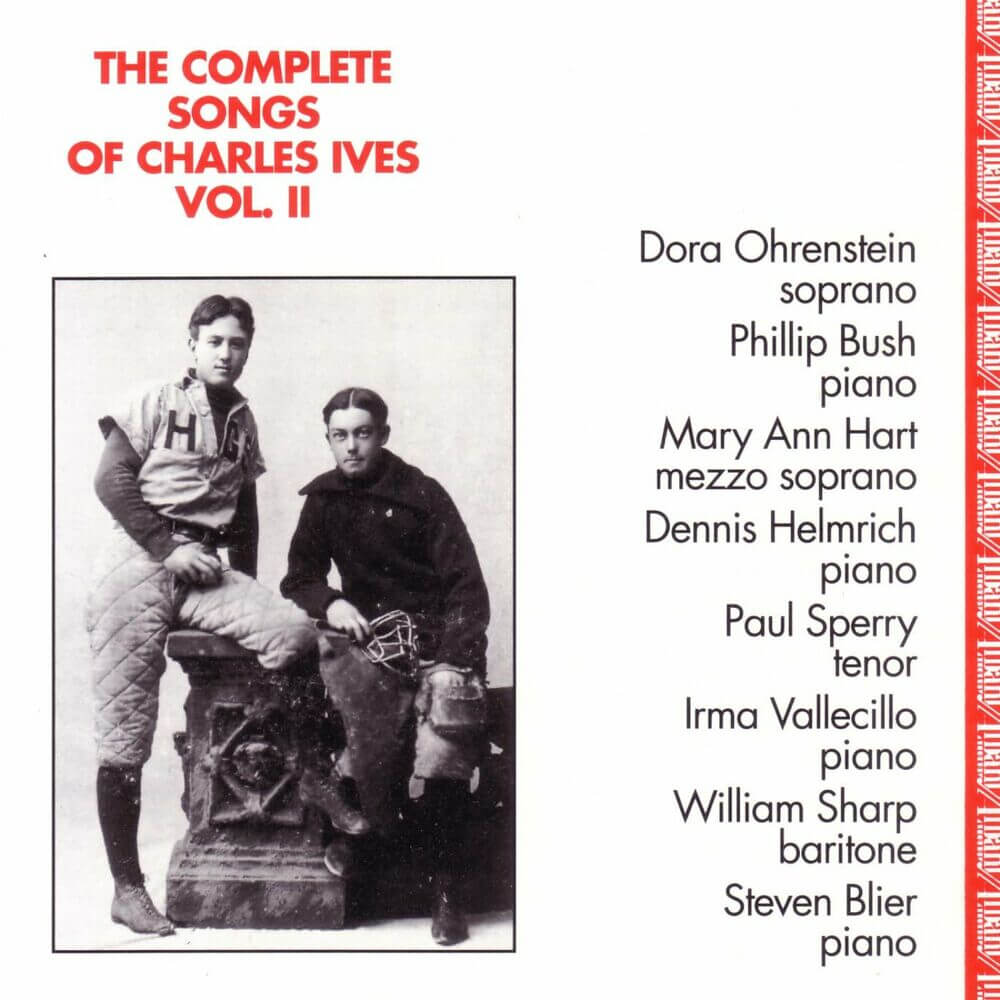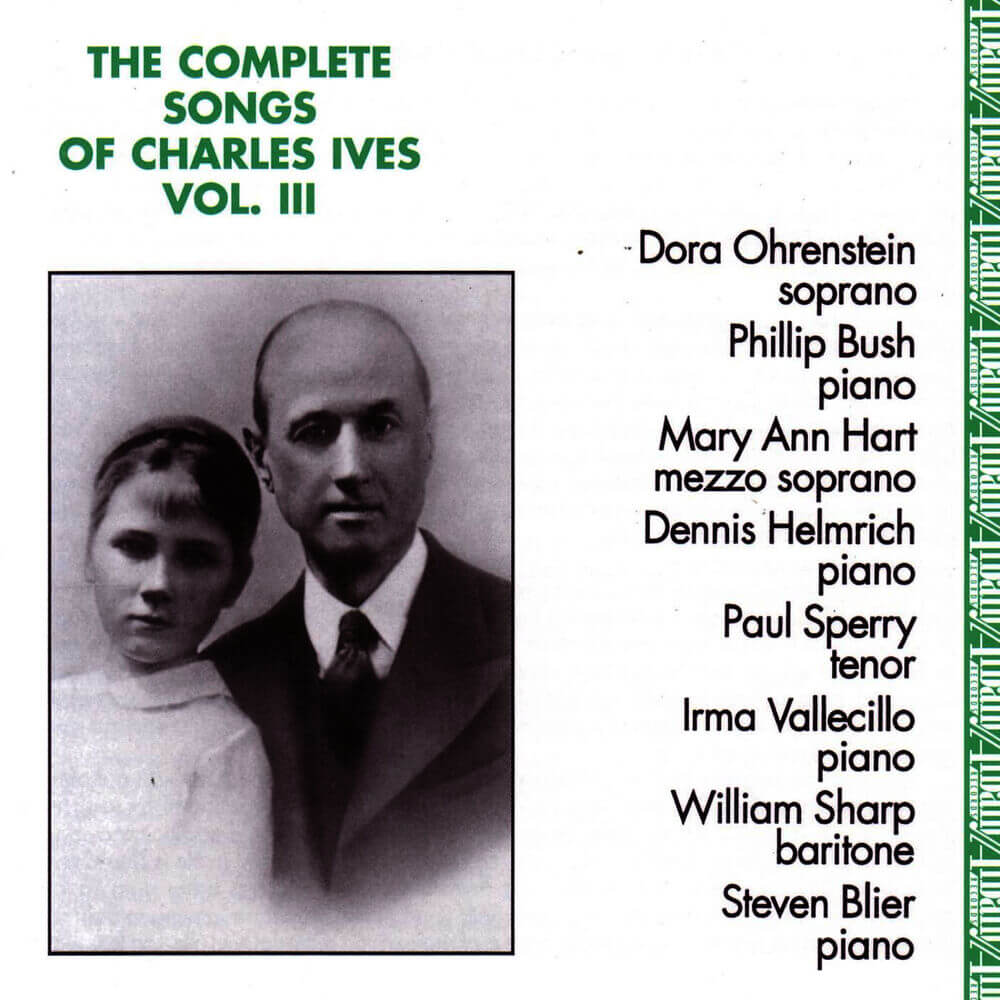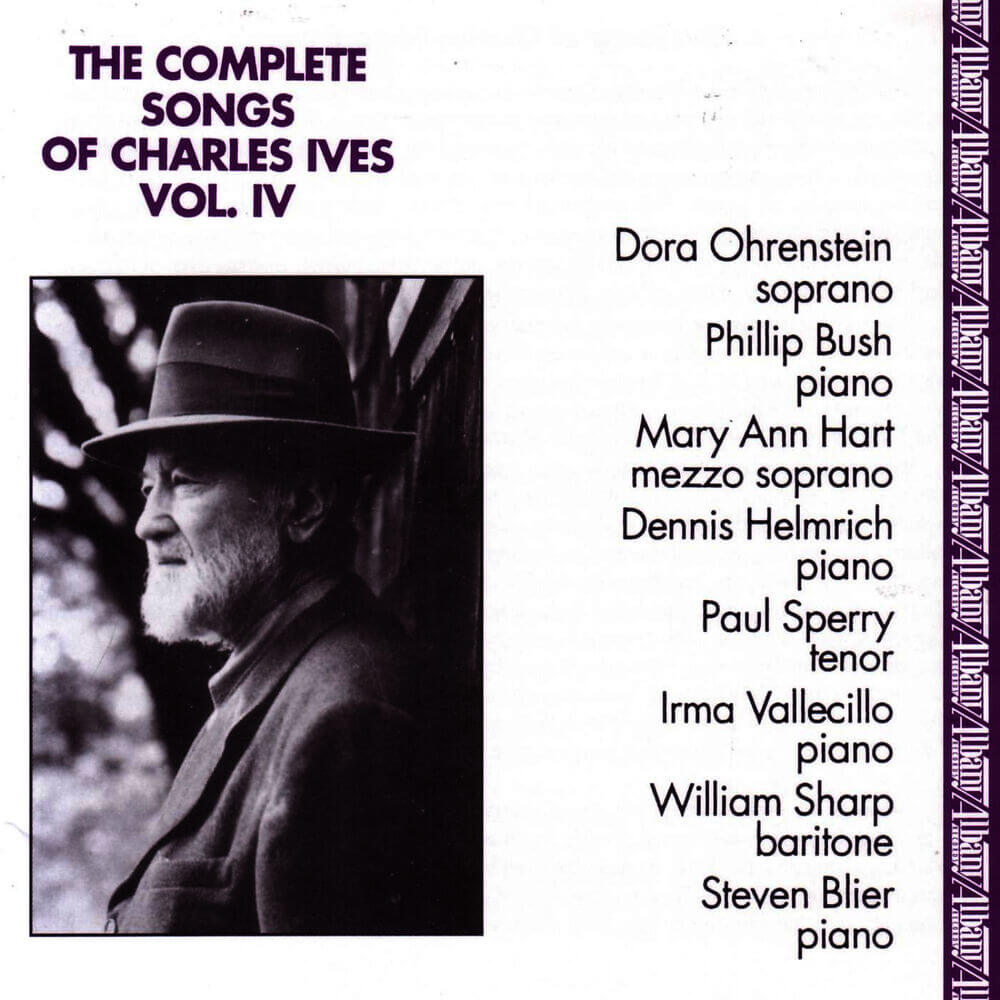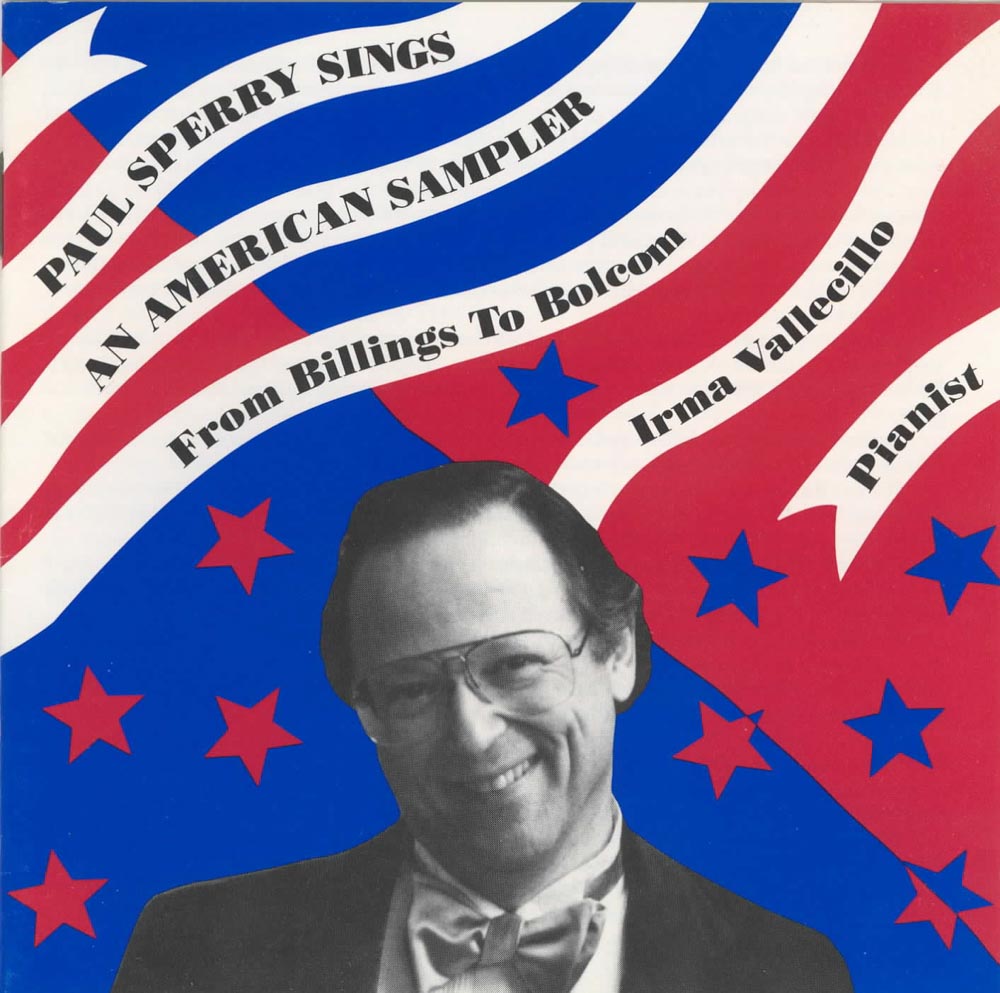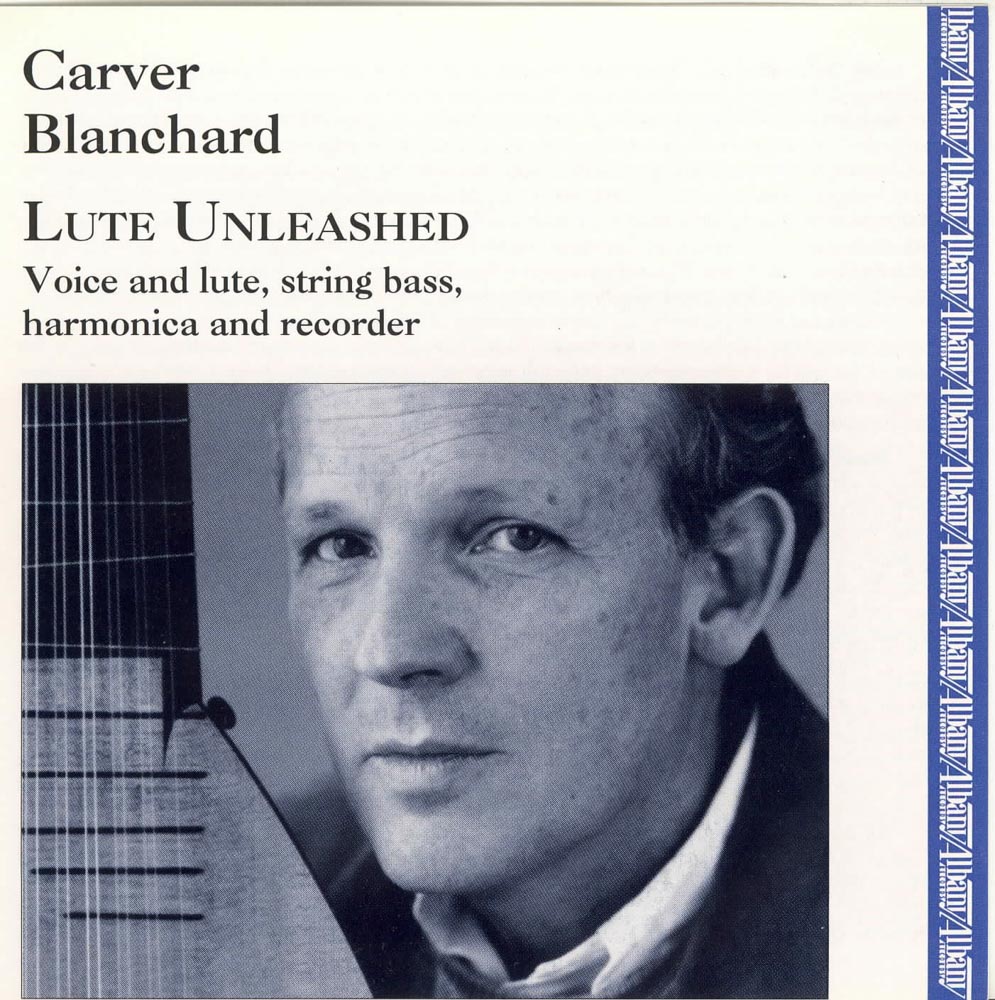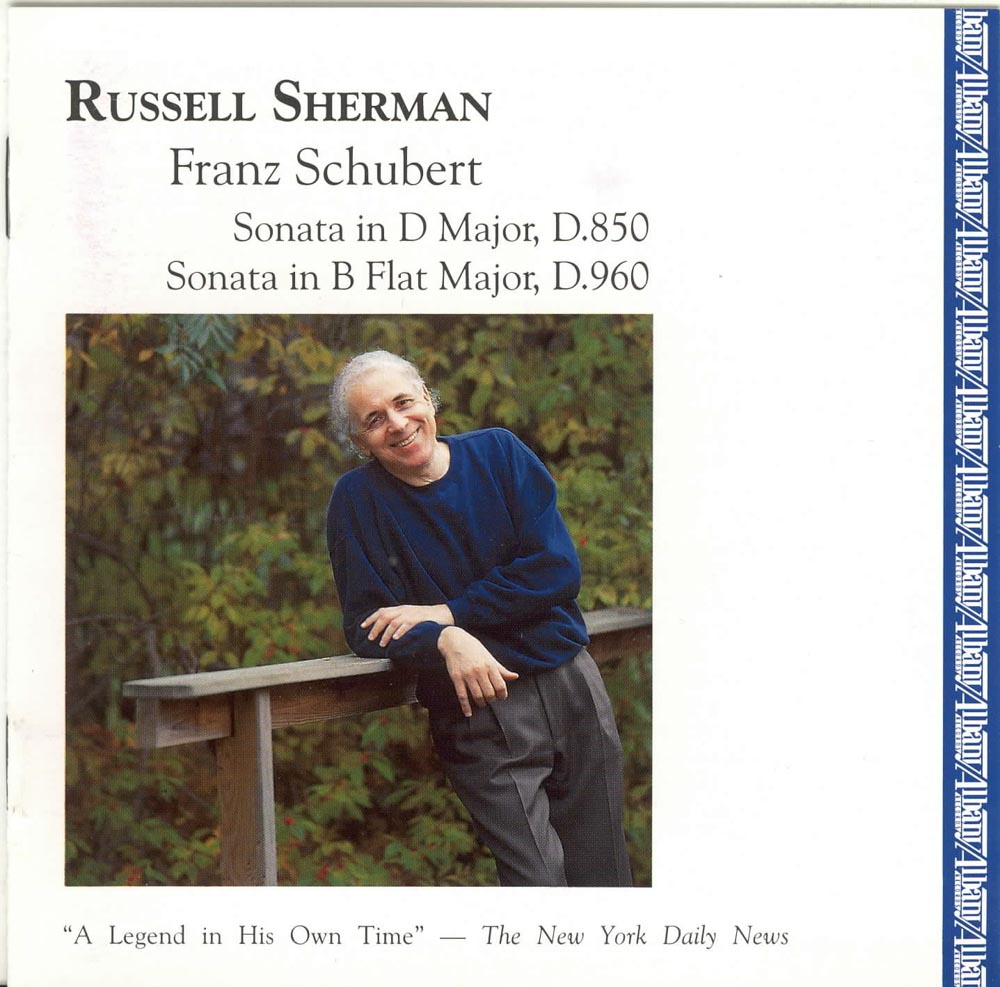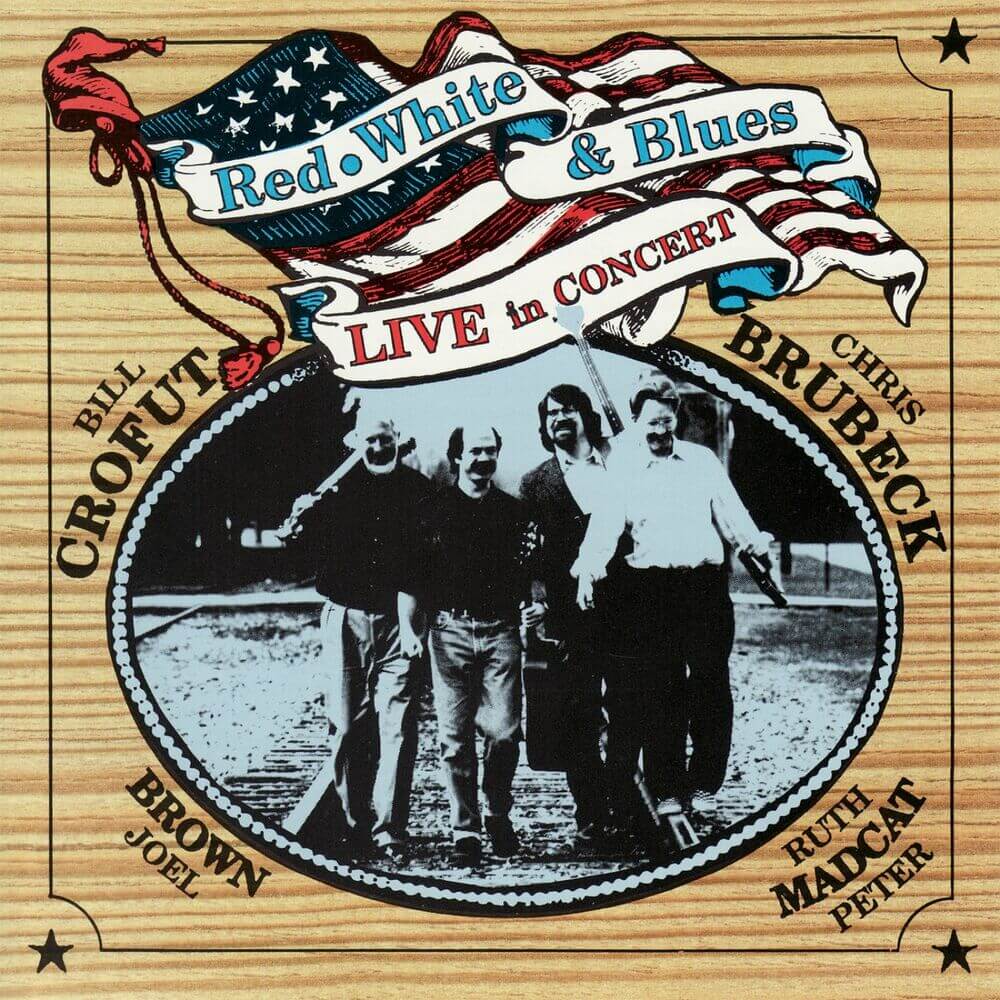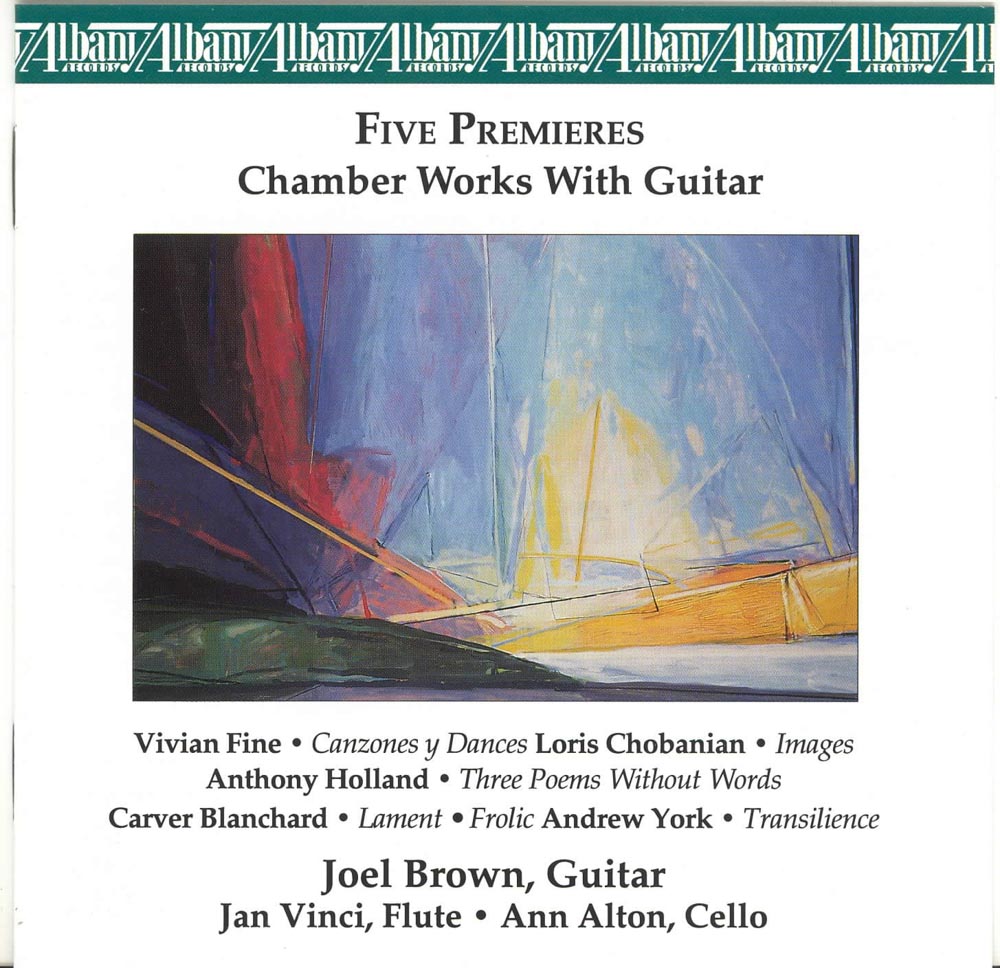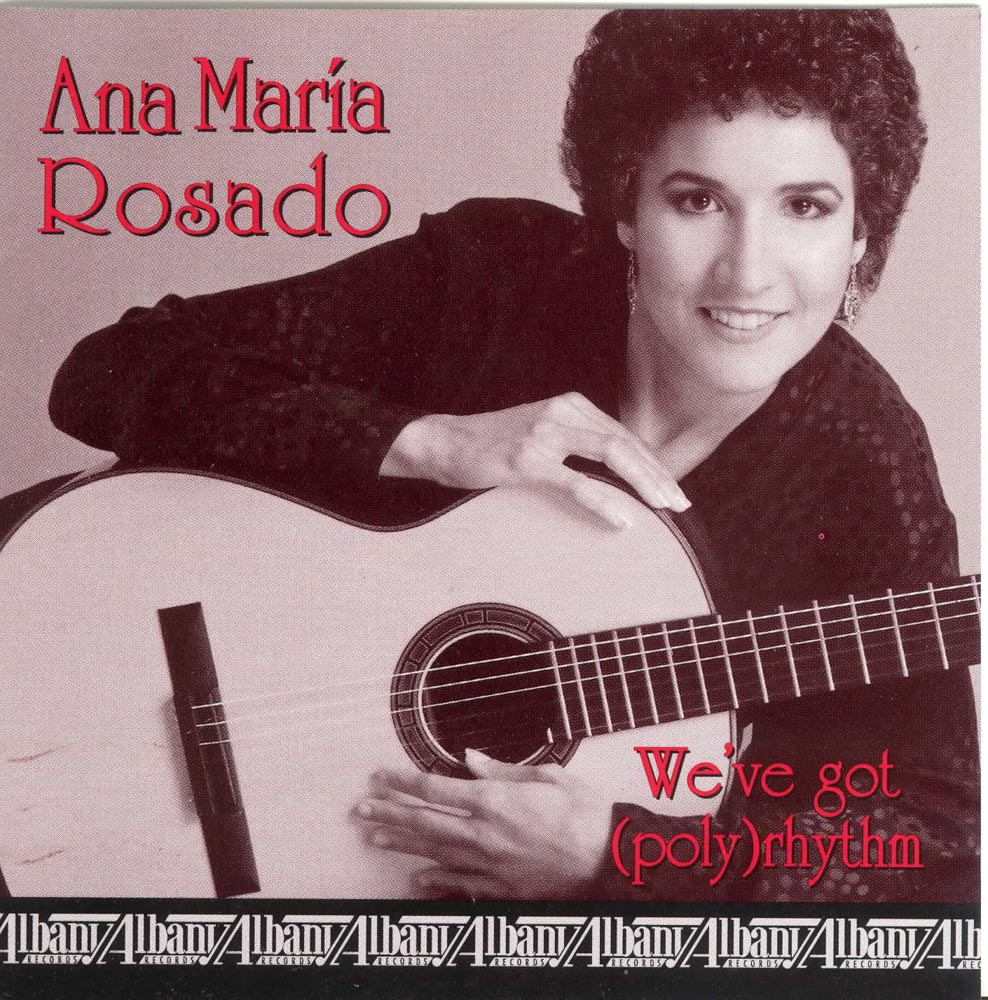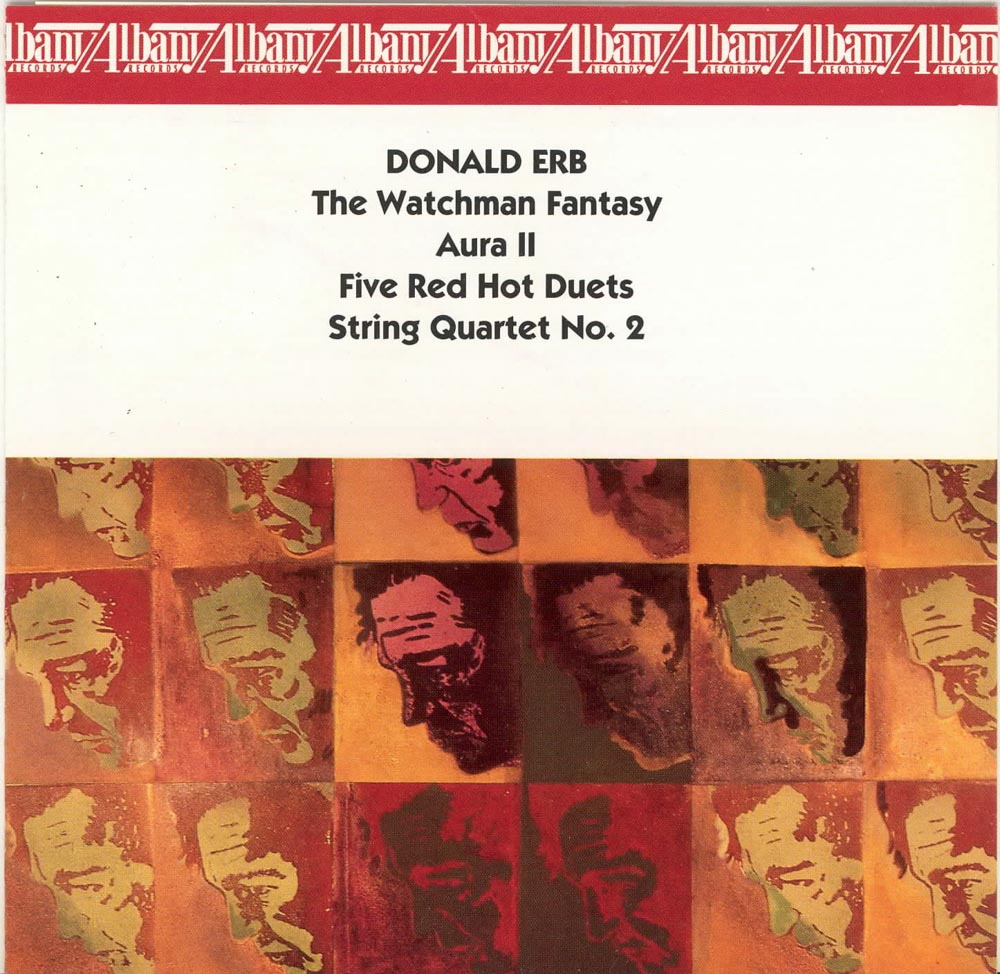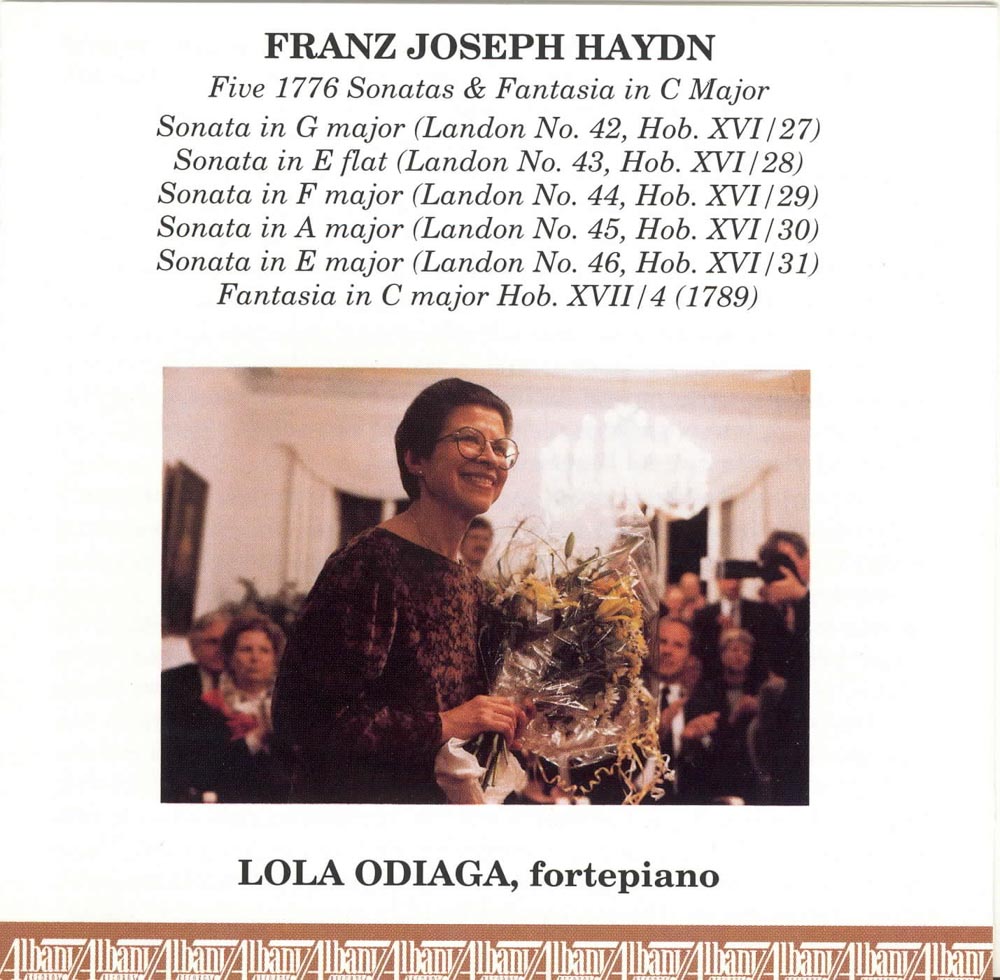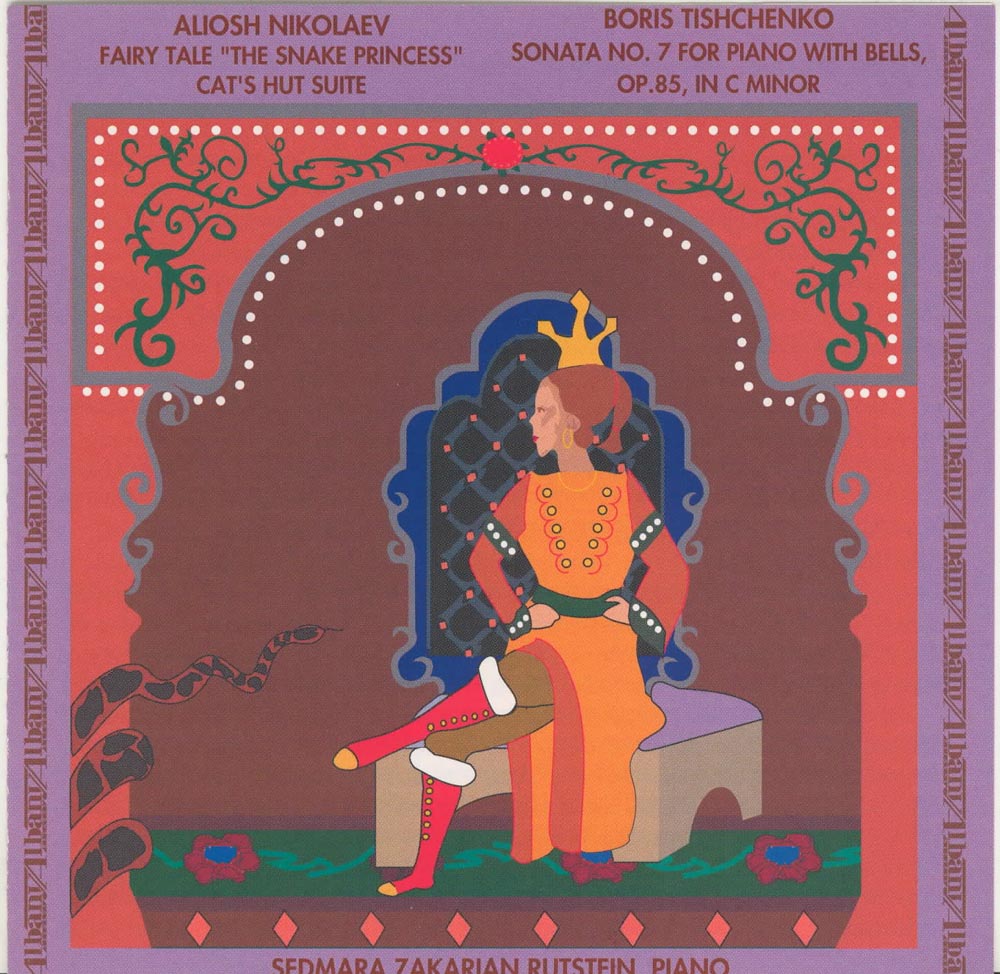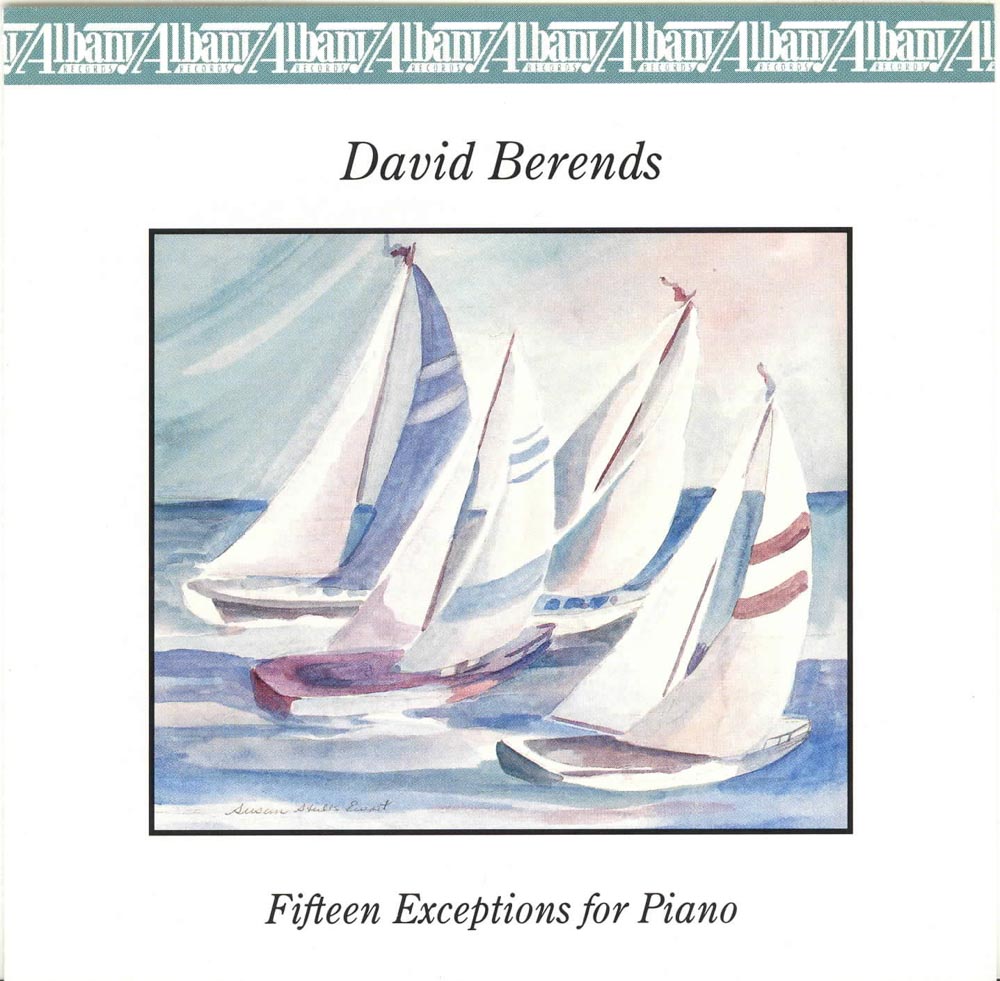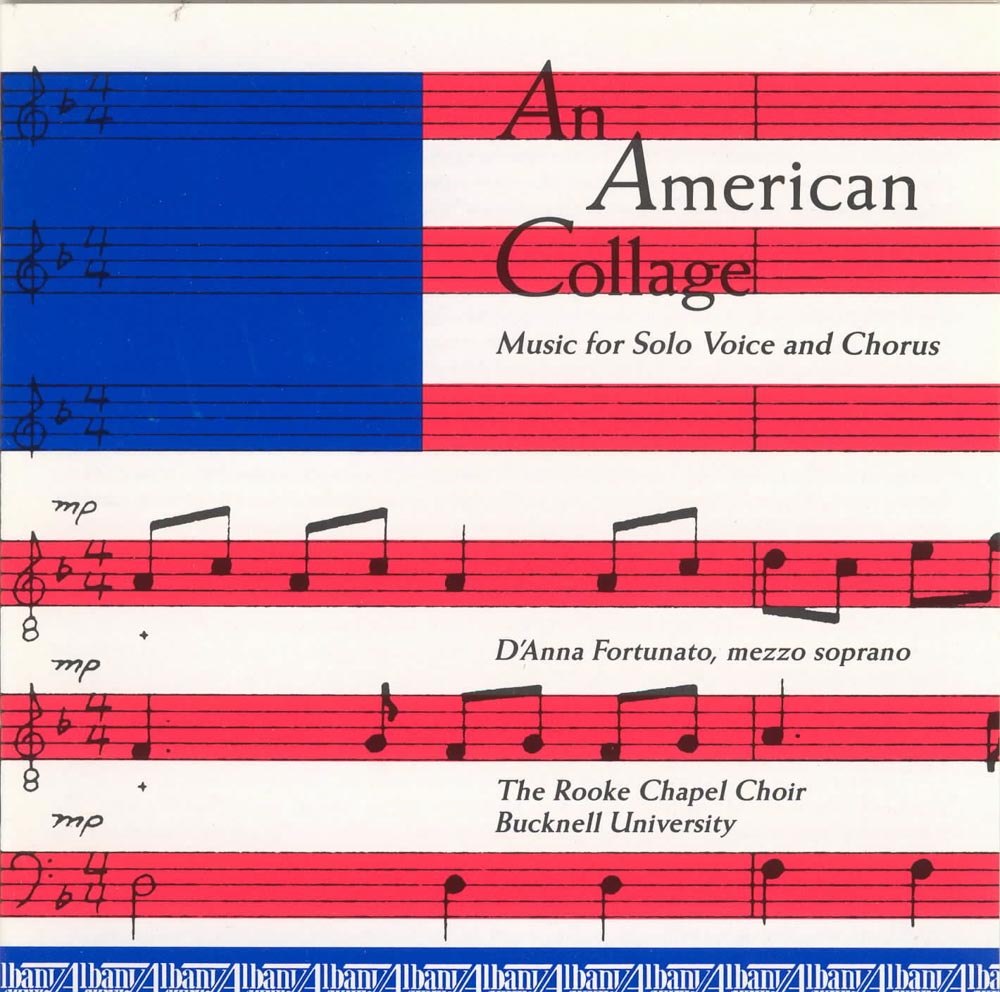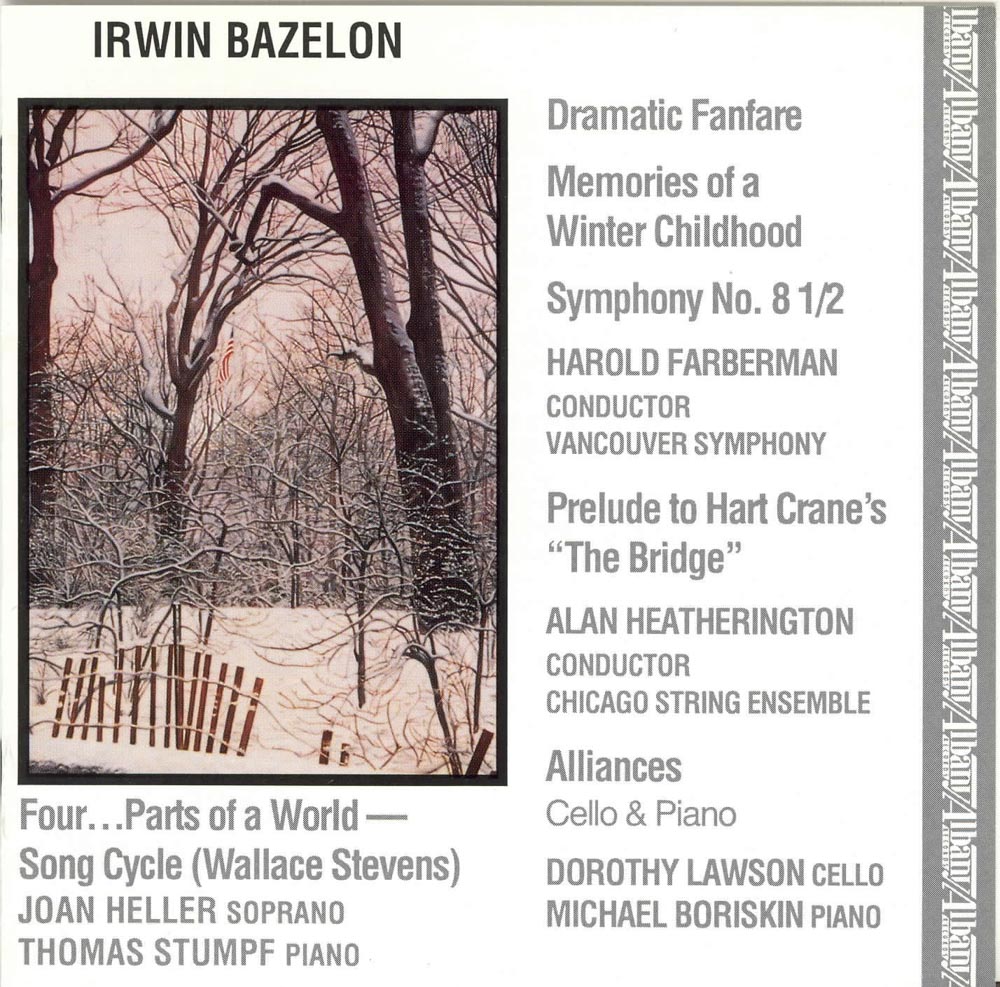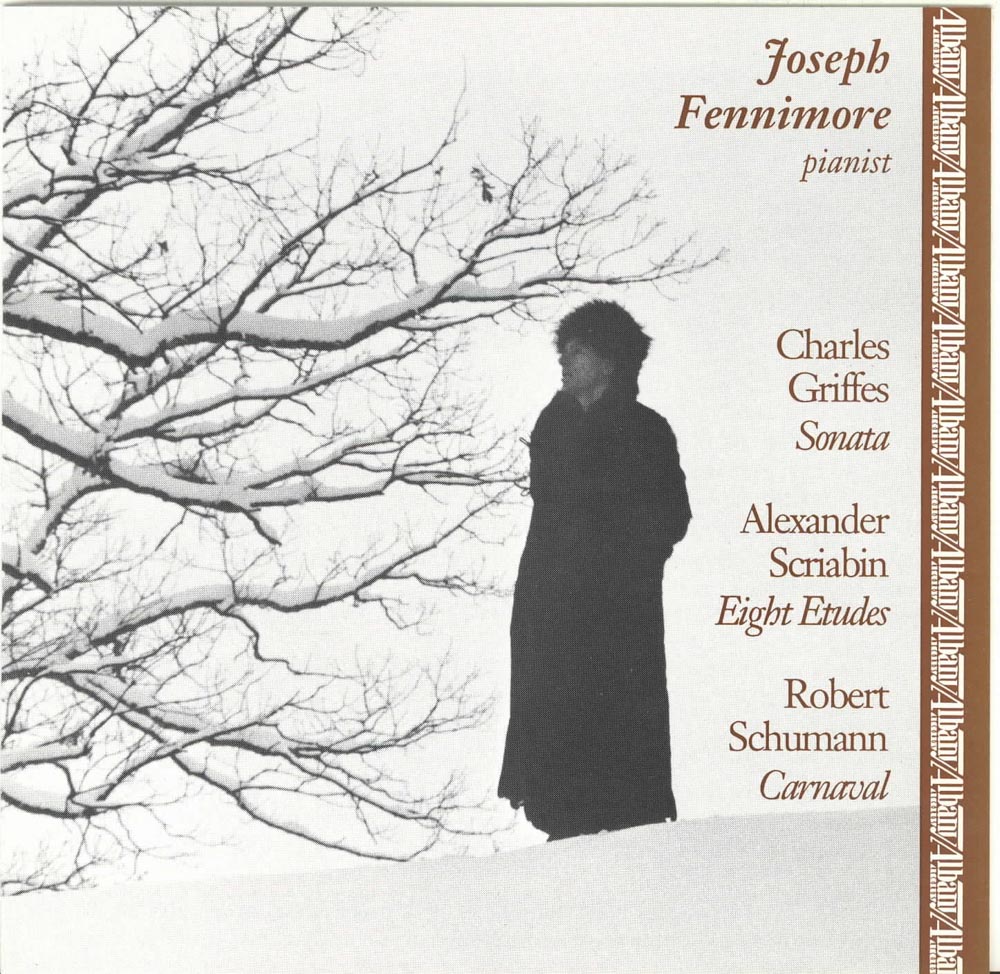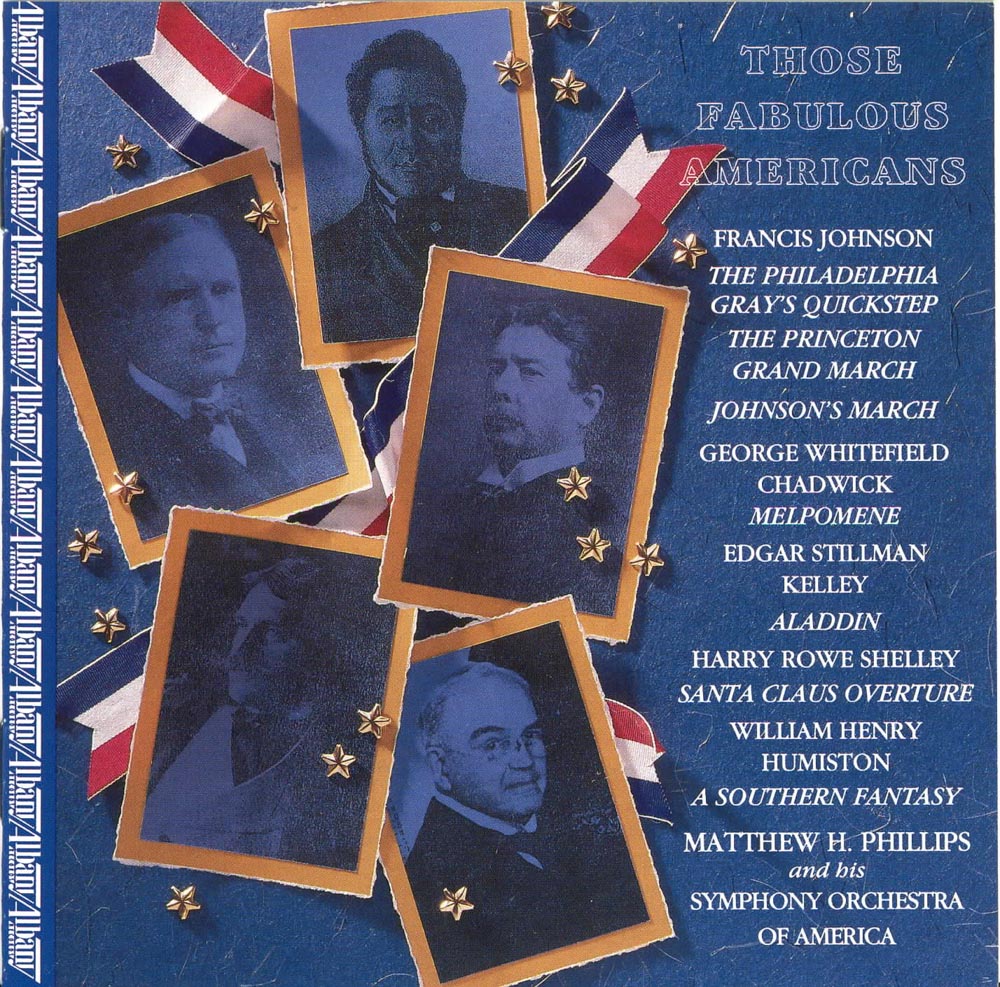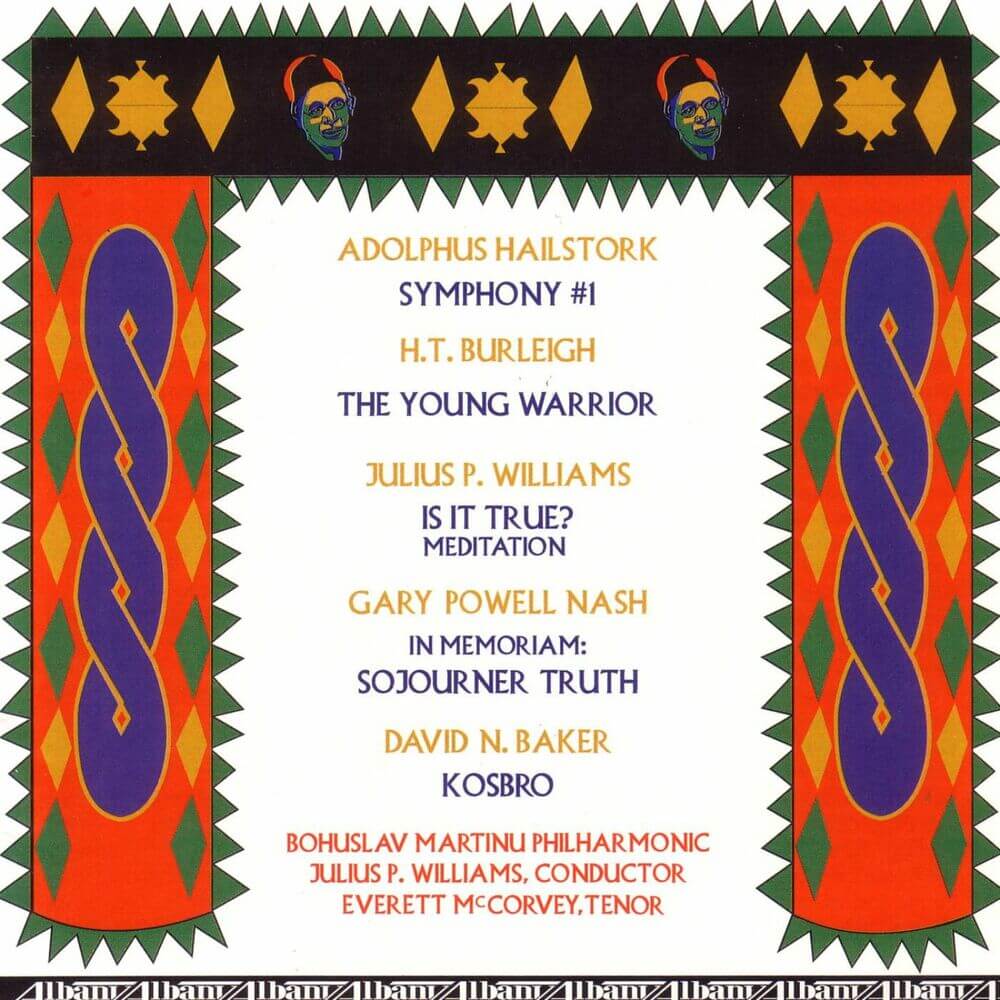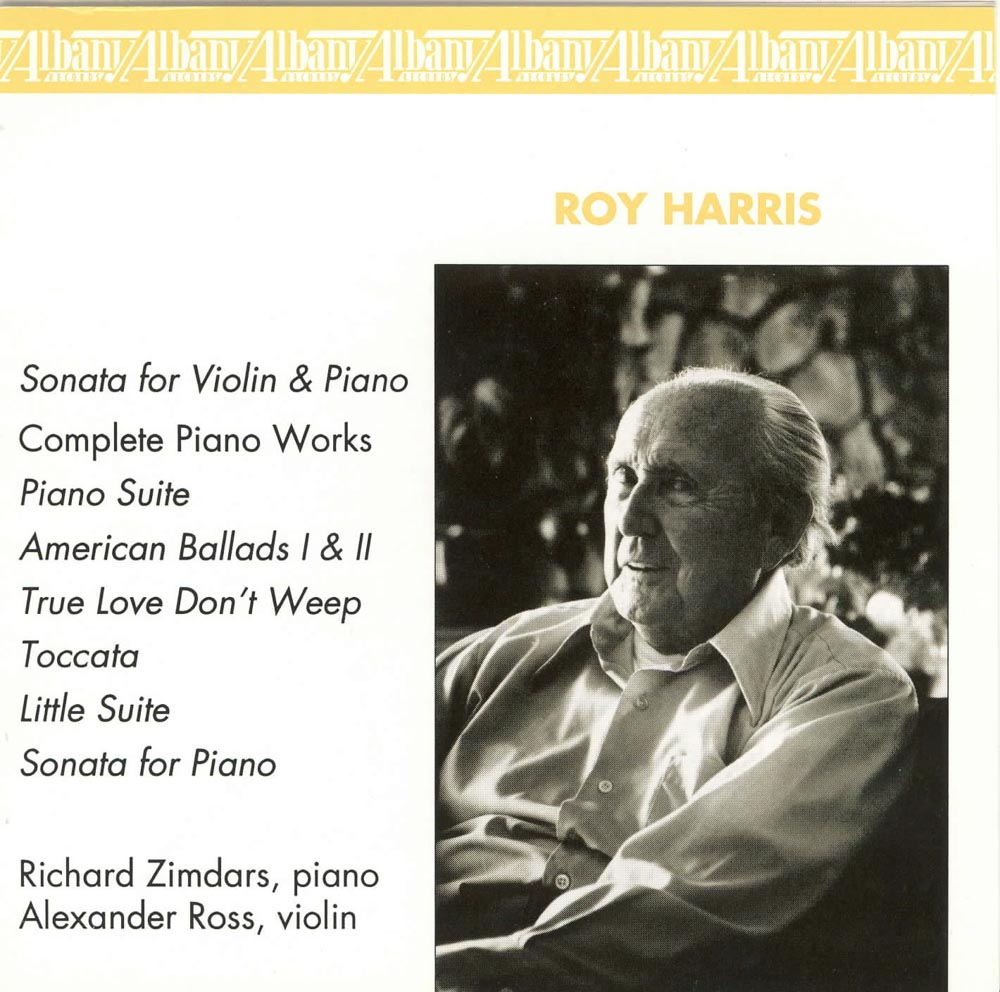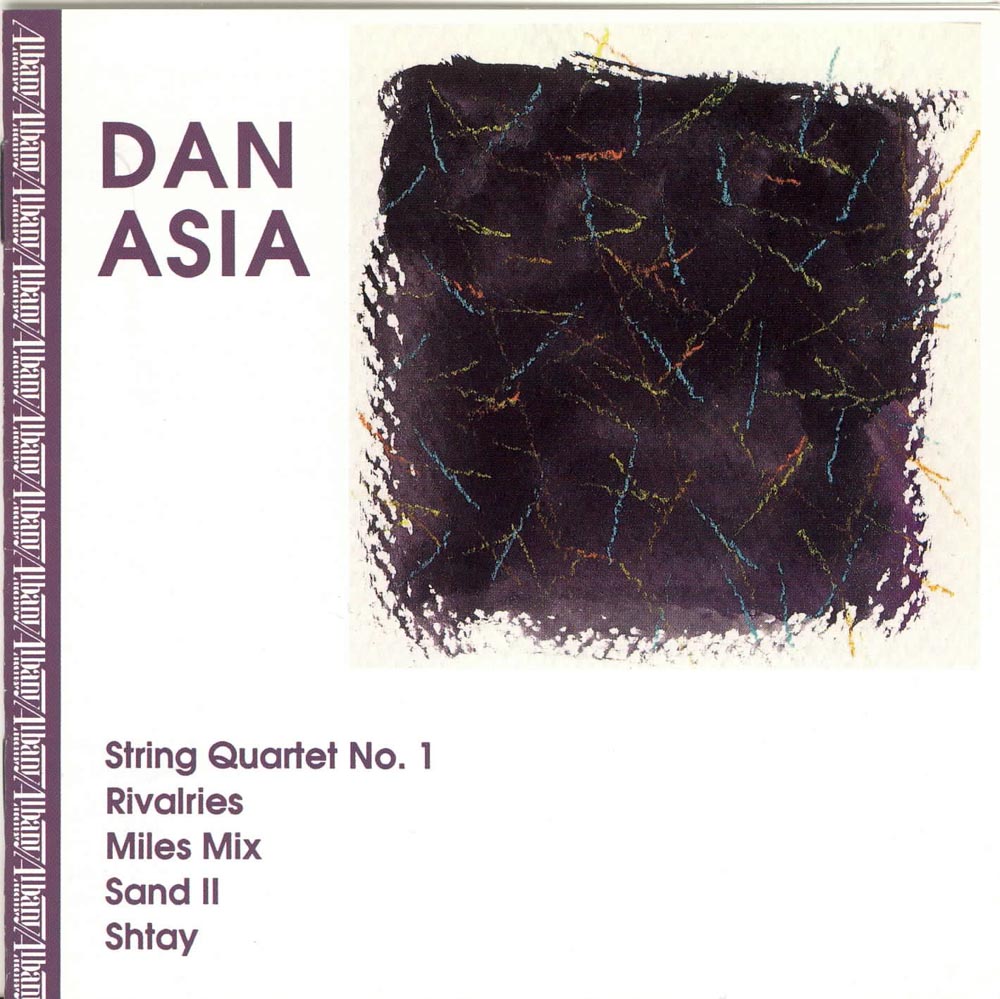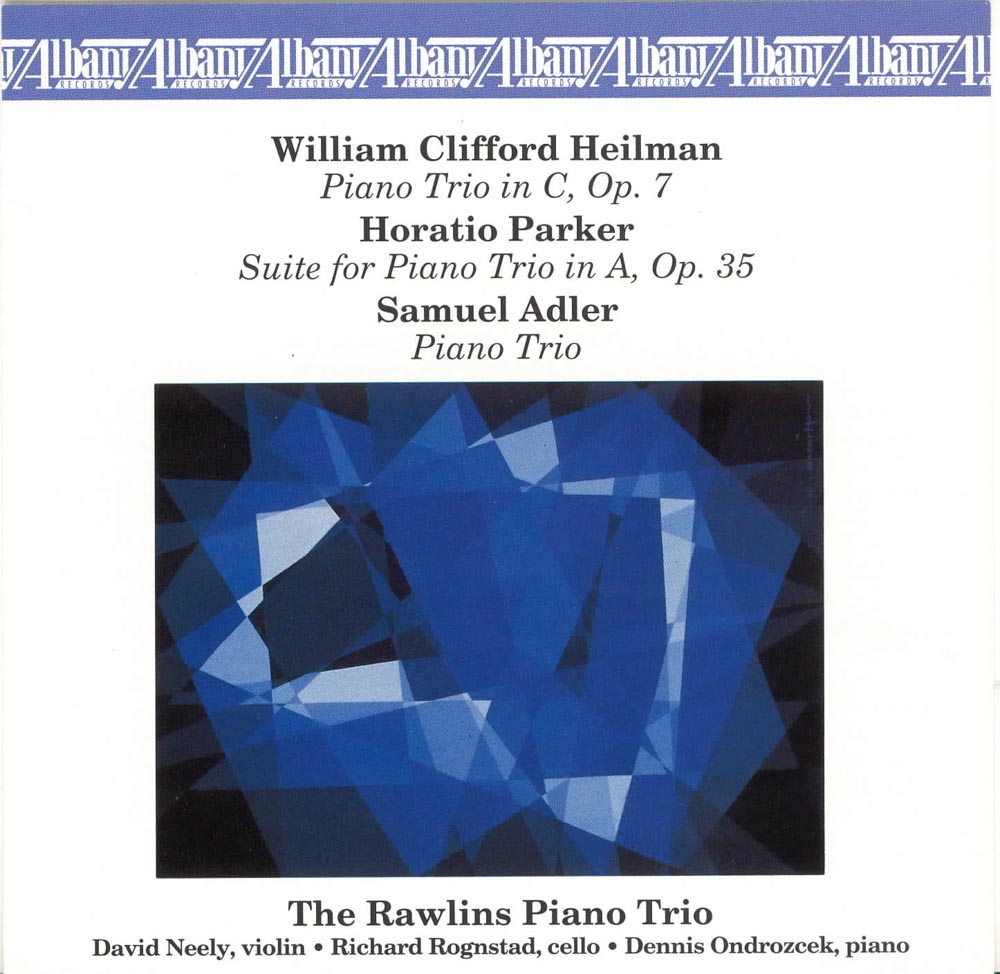Catalog #: TROY0068
Release Date: March 1, 1993ChamberThis recording contains some of William Mayer's finest music. "William Mayer's music sings out with real beauty, both in the vocal writing (he is especially known for his operas and songs) and the instrumental settings," wrote John Rockwell of the New York Times on the occasion of the composer's sixtieth birthday. And indeed this recording gives the listener a rich sampling of his vocal music; opera, songs and choral compositions. But, just as importantly, it contains two purely instrumental works - Abandoned Bells for piano and Inner and Outer Strings for string orchestra - which must count as two of the composer's most haunting scores. Mayer's career has contained such memorable events as Mrs. Eleanor Roosevelt narrating his Hello World, a musical trip for orchestra and Leopold Stokowski premiering his Octagon for Piano and Orchestra.
Catalog #: TROY0069
Release Date: August 1, 1992InstrumentalSchubert made an extraordinary contribution to the four-hand repertoire, and his compositions in the form span his entire career. In all, he wrote some 60 works for piano four hands, many of which rank among his most profound and inspired creations as well as his most charming and delightful. It is clear that Schubert did not consider it simply occasional music, but as a serious medium that was perhaps more natural to him than the composition of solo piano music. In fact, Schubert made his first public performance as a pianist in March 1818 performing his own four-hand arrangement of the Italian Overture in D Major on two pianos with Ansel Huttenbrenner. And when he decided to approach Beethoven, whom he worshipped, it was with a four-hand work, the Variations in E Minor, which made a favorable impression. Schubert was also extremely demanding that the pianists he performed with were first rate and once commented that "this damned bashing, which is to be found among even the most renowned pianists, I cannot stand. It delights neither the ear nor the heart." One of Schubert's favorite partners was Josef von Gahy who described his playing: "the sometimes tender, sometimes flowing and bold performances of Schubert, who played the primo part, his strong technique, and free interpretation made the hours of playing together delightful and unforgettable."
Catalog #: TROY0070
Release Date: July 1, 1992InstrumentalMarthanne Verbit comments: "We are now such a long way from the optimism, excitement, intellectual ferment and urge to experiment prevalent at the outset of the nineteenth century that it is difficult to believe all this really existed. The various movements that flourished during this era - impressionism, expressionism, futurism, cubism and neo-classicism, to name just a few - brought about a flood tide of music for the piano, this as diverse as the "movements" that inspired it. Perhaps at this point, we can listen with fresh ears to two of these earliest trend-setters, Cyril Scott and Leo Ornstein."
Catalog #: TROY0071
Release Date: July 1, 1992InstrumentalMarthanne Verbit was born in Atlanta and raised in the small town of Fitzgerald, Georgia. She spent her childhood either at a piano or in toe shoes, with frequent appearances on television, at music festivals and in theatrical productions in Florida, North Carolina and Georgia. She left the deep South to attend Hollins College and Boston University School for the Arts, receiving music degrees from each. Further studies at the Eastman and Juilliard Schools and Columbia University kept her in the North. Widely acclaimed for her flair, poetic fantasy, insightful musicianship and unforgettable stage presence, Verbit's piano recitals through the United States and Europe have established her as a favorite among piano connoisseurs. This piano recital includes works by George Gershwin (1898-1937); George Antheil (1900-1959); John Diercks (b. 1927); Joseph Fennimore (b. 1940); Leo Ornstein (1892); and Cyril Scott (1879-1970).
Catalog #: TROY0072
Release Date: November 1, 1992VocalThe selections on this recording were chosen from the rich treasury of Russian art songs, or romances, as they are called in Russian. What has been attempted with this recording is to give the listener a sampler of nineteenth century Russian romances. There are songs by composers who are better-known for their larger orchestral or operatic forms, namely Borodin, Mussorgsky, Glinka, Rimsky-Korsakov and Tchaikovsky, along with the less well-known composers, Dargomyzhsky, Arensky, Gliere, and Cui, who shaped the music of their own culture by writing large numbers of romances. The above-mentioned composers can well represent the nineteenth-century Russian romance from its earliest beginnings into the twentieth century. A native of Indiana, mezzo-soprano Linn Maxwell enjoys a rich and varied career that takes her to the stages of major orchestras, opera companies and recital halls all across the United States. She is a graduate of the University of Maryland and holds a Master of Music degree from Catholic University in Washington, D.C. She has served on the faculty of Michigan State University, the University of Maryland and the Bay View Music Festival and has recorded for the RCA Red Seal, New World, Centaur and Albany Records labels.
Catalog #: TROY0073
Release Date: March 1, 1993ChamberThree generations of fine American composers are represented on this disc. Copland's "Movements" and "Two Pieces" are his only works for string quartet as is the "First Quartet" of the great Pulitzer Prize winning composer, Robert Ward. About this work he has written: "By the time of the composition of the "First String Quartet," I had reached the conclusion that two cardinal principles prevailed in those works, new or old, which makes a lasting impression on the listener. The first is that the work must be based on provocative musical ideas that are clearly stated and, in the case of longer works, are stimulating to the composer's creative powers. The second is that an aesthetically satisfying work unfolds in sounds which produce waves of alternating tension and relaxation in the listeners, commanding their full attention. I had arrived at these conclusions by analyzing many works from many musical periods." This string quartet is an important work in Dr. Ward's output, appealing and imaginative. Stephen Jaffe was born in Washington, DC. He was trained in composition at the University of Pennsylvania and the Conservatoire de Musique in Geneva, Switzerland. To date, this is the only string quartet that Mr. Jaffe has composed. In 1991, it was one of four winners in the Kennedy Center Freidheim Awards for Excellence in Chamber Music Composition. Currently he serves on the music faculty of Duke University. This is the world premiere recording of the quartet.
Catalog #: TROY0074
Release Date: March 1, 1993ChamberRichard Wilson was born in Cleveland and studied piano, cello, theory and composition at the Cleveland Music School Settlement. In 1963, he graduated from Harvard and took his mater's degree in music composition at Rutgers in 1966. It was at this point that he joined the Vassar faculty, where he is currently Professor of Music. In 1992-93, he was the Composer-in-Residence with the American Symphony Orchestra. In that same year, he was also a Guggenheim Fellow. For those not familiar with Wilson's music, it is not avant-garde, nor is it abashedly tonal. It is well crafted and beautifully performed on this disc. Note the number of excellent musicians who perform on this disc including the great cellist, Fred Sherry, the great English flutist, John Solum, and Walter Trampler, one of the greatest violists who ever lived.
Catalog #: TROY0076
Release Date: December 1, 1992OrchestralThe fact that the word violino means "little viola" might suggest that the alto of the string family was in fact the primary instrument from which the others developed. Not so; the viola inherited the name of its illustrious predecessor, the viol, but not is prominence. The modern viola has been slow to make its way. Eighteenth century composers mostly ignored it or left it to double the violins or cellos; even Beethoven never trusted his orchestral violas with an independent solo part. Even the double bass could boast of several famous virtuosi, but the only important solo viola part before the end of the 19th century was written by Berlioz for Paganini! The notion that the viola is a failed violin dies hard, and outside of chamber music, it is only in relatively recent times that the viola has finally become established as an instrument with its own manner of expression and its own repertoire. The liberation of the viola has been in part accomplished through the pioneering efforts of outstanding performers like the Britishers Lionel Tertis and William Primrose who literally called forth - commissioned or inspired - a whole repertoire. The Bartok Concerto on this recording was one of these commissions for William Primrose but the Hindemith Viola Concerto came about because Hindemith himself was an important performer on the viola. Raphael Hillyer was a member of the Boston Symphony Orchestra under Koussevitsky and the NBC Orchestra under Toscanini. He was a founding member of the Juilliard String Quartet and been a soloist with orchestras in the United States and abroad.
Catalog #: TROY0077
Release Date: December 1, 1992VocalCharles Edward Ives (1874-1954) was a prolific composer of orchestral, instrumental, and vocal music. He composed more songs than any other type of music. In four volumes, four singers accompanied by their individual pianists, present more than 150 songs chronologically, the first recording of the complete songs of Charles Ives. Ives authorized transposition of them, so they can be sung by all voices. This amazing body of work from a musician who was also an inventive and successful insurance executive, span the 35 years of Ives's compositional life, mirroring the many facets of his character: tenderness, humor, disapproval of hypocrisy and sham, nostalgia, Americanism, Yankeeism, religion, socialism, love of nature. Some of the songs are extremely difficult; others are simpler; few can be picked up and read right off. They resemble a workshop filled with Ives's ideas, fragmentary or extended. Most were published in 114 Songs - the book compiled, published, and distributed at Ives's own expense in 1922; others were composed "post-114," among them Peaks, Yellow Leaves, The One Way, A Sea Dirge and In the Mornin'. The Ives oeuvre is substantial, and his output in songs alone is richer and more fulsome by far than might be expected from any career, let alone a curtailed one. This four volume set of the complete songs of Charles Ives is a major contribution toward the understanding, appreciation, and enjoyment of one of the greatest song collections in the history of music.
Catalog #: TROY0078
Release Date: August 1, 1993VocalCharles Edward Ives (1874-1954) was a prolific composer of orchestral, instrumental, and vocal music. He composed more songs than any other type of music. In four volumes, four singers accompanied by their individual pianists, present more than 150 songs chronologically, the first recording of the complete songs of Charles Ives. Ives authorized transposition of them, so they can be sung by all voices. This amazing body of work from a musician who was also an inventive and successful insurance executive, span the 35 years of Ives's compositional life, mirroring the many facets of his character: tenderness, humor, disapproval of hypocrisy and sham, nostalgia, Americanism, Yankeeism, religion, socialism, love of nature. Some of the songs are extremely difficult; others are simpler; few can be picked up and read right off. They resemble a workshop filled with Ives's ideas, fragmentary or extended. Most were published in 114 Songs - the book compiled, published, and distributed at Ives's own expense in 1922; others were composed "post-114," among them Peaks, Yellow Leaves, The One Way, A Sea Dirge and In the Mornin'. The Ives oeuvre is substantial, and his output in songs alone is richer and more fulsome by far than might be expected from any career, let alone a curtailed one. This four volume set of the complete songs of Charles Ives is a major contribution toward the understanding, appreciation, and enjoyment of one of the greatest song collections in the history of music.
Catalog #: TROY0079
Release Date: January 1, 1994VocalCharles Edward Ives (1874-1954) was a prolific composer of orchestral, instrumental, and vocal music. He composed more songs than any other type of music. In four volumes, four singers accompanied by their individual pianists, present more than 150 songs chronologically, the first recording of the complete songs of Charles Ives. Ives authorized transposition of them, so they can be sung by all voices. This amazing body of work from a musician who was also an inventive and successful insurance executive, span the 35 years of Ives's compositional life, mirroring the many facets of his character: tenderness, humor, disapproval of hypocrisy and sham, nostalgia, Americanism, Yankeeism, religion, socialism, love of nature. Some of the songs are extremely difficult; others are simpler; few can be picked up and read right off. They resemble a workshop filled with Ives's ideas, fragmentary or extended. Most were published in 114 Songs - the book compiled, published, and distributed at Ives's own expense in 1922; others were composed "post-114," among them Peaks, Yellow Leaves, The One Way, A Sea Dirge and In the Mornin'. The Ives oeuvre is substantial, and his output in songs alone is richer and more fulsome by far than might be expected from any career, let alone a curtailed one. This four volume set of the complete songs of Charles Ives is a major contribution toward the understanding, appreciation, and enjoyment of one of the greatest song collections in the history of music.
Catalog #: TROY0080
Release Date: April 1, 1994VocalCharles Edward Ives (1874-1954) was a prolific composer of orchestral, instrumental, and vocal music. He composed more songs than any other type of music. In four volumes, four singers accompanied by their individual pianists, present more than 150 songs chronologically, the first recording of the complete songs of Charles Ives. Ives authorized transposition of them, so they can be sung by all voices. This amazing body of work from a musician who was also an inventive and successful insurance executive, span the 35 years of Ives’s compositional life, mirroring the many facets of his character: tenderness, humor, disapproval of hypocrisy and sham, nostalgia, Americanism, Yankeeism, religion, socialism, love of nature. Some of the songs are extremely difficult; others are simpler; few can be picked up and read right off. They resemble a workshop filled with Ives’s ideas, fragmentary or extended. Most were published in 114 Songs – the book compiled, published, and distributed at Ives’s own expense in 1922; others were composed “post-114,” among them Peaks, Yellow Leaves, The One Way, A Sea Dirge and In the Mornin’. The Ives oeuvre is substantial, and his output in songs alone is richer and more fulsome by far than might be expected from any career, let alone a curtailed one. This four volume set of the complete songs of Charles Ives is a major contribution toward the understanding, appreciation, and enjoyment of one of the greatest song collections in the history of music.
Catalog #: TROY0081
Release Date: August 1, 1993VocalFrom Billings to Bolcom - the subtitle of this recording dedicated to the American art song is a compilation of the best American has to offer from our musical beginnings to today. "Some of our best American composers have not been prolific songwriters," says Paul Sperry. "I think William Schuman's Orpheus with His Lute has everything a song needs: it is simple, moving and beautiful. But it is a single song, written for a proposed production of Henry VIII and has no companion pieces. Elliott Carter's three settings of Robert Frost constitute almost half of the solo songs he wrote, and Elie Siegmeister's arrangement of William Billings is the only solo Billings song I have seen. That is why I have compiled this American Sampler - to be able to record songs I love without having to worry about assembling a group by each composer. I have simply picked 31 of my favorite songs and put them together the way I would in a recital: organized to show each one to greatest advantage. I have deliberately not grouped the songs by composer, period or style, except for John Musto's little cycle, Shadow of the Blue: I kept it together because it is so powerful as an entity." Paul Sperry is recognized as one of today's outstanding interpreters of American music. Although he is equally at home in a repertoire that extends from Monteverdi opera and the Bach Passions to Britten's War Requiem and hundreds of songs in more than a dozen languages, he brings to American music a conviction and an enthusiasm that has brought it to life for countless listeners.
Catalog #: TROY0083
Release Date: April 1, 1993VocalCarver Blanchard writes: "Lute Unleashed is a traditional recording in that it presents the work of a composer-arranger whose instrument is the lute. In centuries past that is what professional lutenists were; indeed had to be if they were to support themselves. An appointment to a court or great house afforded one of the few opportunities for regular employment and carried with it a particularly wide range of duties. These included playing in dance ensembles, accompanying singers, providing entertainment for banquets and special occasions, and of course, responding to the spontaneous and unforeseen. One can only guess how often a half-drunk guest of the duke made his way to the lute player and needed help getting through the song he had heard somewhere last week. It is today's studio musician, not today's concert musician, whose situation and abilities most nearly resemble those of the working lutenist of the Renaissance. I was born and raised in Louisiana and most of the material on this recording comes from memories of my boyhood in the South. There may at first appear to be some novelty in the use of the lute for the performance of such relatively modern music. In fact, it brings to modern music the same distinctive and compelling qualities that made it the most popular instrument in Europe for over 200 years."
Catalog #: TROY0084
Release Date: May 1, 1993InstrumentalThe artist Hans Hofmann once described a painting to a critic as stemming from unbreakable rules. Then he immediately turned to another of his paintings and said he never thought while painting: it interfered with his spontaneity. Sherman's music is that same contrapuntal fission of rule and rebellion, skeleton and soul: structure informed by passion, the premeditated speech tripped up by the spontaneous touch, the push and pull of mind against gland, the classical cape against the romantic thigh, the German scholar and Hungarian guerilla fused so that both exist simultaneously at any given time. As the New York Times has said, "It was the kind of fantastical piano program that Horowitz's playing might have splintered apart with fireworks...But when Russell Sherman played these compositions in Alice Tully Hall the music was glittering, but not fractured; it made sense along with its sound." Sherman is the pianist's pianist, his concerts filled with excited musicians. If you have not been lucky enough to attend his rare, tortured, and ecstatic concerts, we hope this lush Schubert album with its seething undercurrents will, along with his 20-odd other recordings, provide some consolation.
Catalog #: TROY0085
Release Date: December 1, 1992Jazz“We like to sing about what we would like to be, and we must sing about what we are. The songs of a culture speak for themselves. That is what this recording is all about – the contrasting sides of our national character as reflected in our diverse musical heritage. More importantly, it is in part a look at today’s America through yesterday’s songs.,” so say Bill Crofut and Chris Brubeck in the notes for this recording of folk and popular songs. The surprise on this recording is the Jew’s harp playing of Peter Madcat Ruth. Crofut and Brubeck continue: “As you will hear, Madcat’s musical gifts are apparent throughout this recorded concert. His technique, his “time,” his soulfulness, and his taste are superior. We also must explain why the audience is laughing so hysterically not only at Madcat’s lead vocal and ridiculous traditional lyrics but also at his harp solo on Old Joe Clark. Every sound you hear in his solo after the second verse is made only by Madcat. There are no overdubs and somehow he does the following, in sequence, punctuated by the crowd’s amazed outbursts: chugs along on the harp and adds a duck call to the corner of his mouth plus various vocal hoots; replaces the duck call with a siren whistle; whips out a toothbrush and brushes on the microphone for one bar; pounds his chest in rhythm with a plastic hammer toy; squeaks a rubber frog; fits a party favor into each corner of his mouth and in alternating quarter notes blows them while still flying on the harp; breaks into a polyrhythmic “hootin” frenzy while lifting a bass harmonica to play with his nostrils; and plays the melody while the audience sits in stunned anticipation of God knows what might come next!”
Catalog #: TROY0086
Release Date: December 1, 1992ChamberJoel Brown, the guitarist on this recording of works by American composers says in the booklet notes, "My original idea to record guitar quintets by Boccherini and Giuliani changed abruptly after meeting Andrew York at a Los Angeles Guitar Quartet concert. York's infectious compositional style appealed to me and I found myself working new music into what had been a 19th century program. When I approached Andrew about writing for my recording he enthusiastically accepted. This changed everything for me; if Andrew York was interested, then why not other composers as well? Before I knew it, five composers - some of them old friends, some of them new friends - were writing music for a now rethought ensemble of guitar, flute and cello. Several times during this project when the inevitable problems arose, I felt that even if everything were to fall through, I was still infinitely richer for the experience. To work so closely with these fine composers was a rare opportunity. And working with such incredible musicians and good friends as Jan Vinci and Ann Alton was a great pleasure. But the greatest reward is the privilege of premiering this music."
Catalog #: TROY0087
Release Date: April 1, 1993InstrumentalThe guitar has always been a pillar of musical expression in Latin America. Its personal character reflects the strain of individuality in Latin cultures. Twentieth Century luminaries including Heitor Villa-Lobos, Carlos Chavez and Alberto Ginastera, have paid homage to the guitar through their compositions. Contemporary Latin American composers continue the tradition of these musical giants. Composers on this recording, all different in their musical approach, share a special feel for the guitar. Roque Cordero (Panama-USA), Tania Léon (Cuba-USA) and Rafael Aponte-Ledée (Puerto Rico) employ techniques of atonal composition while fusing regional elements. Edmundo Vçsquez, the Paris-based Chilean composer, utilizes traditional folkloric structures elaborated by the techniques of current musical idioms. United States born Francis Schwartz, who has made Puerto Rico his home, uses the guitar and the guitarist as features of a music theater work which includes vocal sounds and gestures from the audience. The renowned Argentinian composer, Astor Piazzolla, added classical training to his vast popular musical experience as a bandoneon player. Piazzolla highlights in these guitar pieces the harmonic language he used to rejuvenate the traditional tango.
Catalog #: TROY0091
Release Date: July 1, 1993OperaBased on the story by Ray Bradbury, this marvelous chamber opera was composed by Lawrence Rapchak between September 1988 and February 1989. It was given its world premiere performance on April 21, 1990 by the same forces heard on this recording. As with so many contemporary operas, the libretto is riveting. Here is a synopsis: Juan Diaz, a poor peasant, dies after a lifetime of failing to provide for his wife Maria and their three children. On his deathbed, he promises to somehow help care for them from beyond the grave. A year after the death, the malevolent gravedigger Alejandro cheats Maria and unearths the body of her late husband, placing it on display in the catacombs. The loyal and courageous Maria then manages to steal the body and evade the gravedigger's charges of theft. She then places the body on an altar in her home, thus creating a small museum of her own, and charges admission to the tourists who come to celebrate the Day of the Dead. Through her actions she has made it possible for Juan to keep his deathbed pledge by providing income for his family.
Catalog #: TROY0092
Release Date: July 1, 1993ChamberDonald Erb, described by Nicolas Slonimsky in the Bakers Biographical Dictionary of Musicians as a "significant American composer," was born in Youngstown, Ohio in 1927. His orchestral music has been played by literally every major orchestra in the United States and many in Europe, Asia and Australia as well. He has had commissions from the Chicago Symphony Orchestra, the Cleveland Orchestra, the St. Louis Symphony Orchestra, the Baltimore Symphony Orchestra, the Dallas Symphony Orchestra, the Houston Symphony Orchestra and others. Erb studied at Kent State University, the Cleveland Institute of Music (where he now teaches), and Indiana University. He has received grants and fellowships from the Rockefeller, Guggenheim, and Ford Foundations and has served as composer in residence with the Dallas and St. Louis Symphony Orchestras. Among the many organizations that have honored him are the International Rostrum of Composers, the Library of Congress, the National Endowment for the Arts and the American Academy of Arts and Letters.
Catalog #: TROY0094
Release Date: August 1, 1993InstrumentalLola Odiaga, the Peruvian harpsichordist and fortepianist, continues her series of the complete works of Haydn for piano with this disc that features five sonatas from 1776. The mid- and later 1770s saw a relaxation in Haydn's compositional style, a move away from the stormy melancholy of the many minor key works written in the late 1760s and early 1770s. It is no coincidence that this was also a period in which the composer strengthened his ties with Vienna where he eventually took up residence in 1791. The "six sonatas of 1776" (so called in Haydn's catalog of his own works), of which five are featured on this recording, were the official property of Haydn's patron Prince Nikolaus Esterhçzy, but they could be purchased in Vienna, in manuscript copies, and from professional copy shops. Each sonata on the program ends with a finale in variation form, based either on a minuet or a contredanse, and this, along with the use of the minuet and trio as an internal movement, and the elements of folk song, suggests that in writing his six sonatas of 1776 Haydn aimed to appeal (though not to pander) to current Viennese taste. The fortepiano used in this recording is a copy of an Anton Walter instrument dated ca. 1790 built by Rodney Regier of Freeport, Maine. It has a compass of just over five octaves and - as was the case with the fortepianos of the period - in many ways resembles the harpsichord more than the modern piano.
Catalog #: TROY0096
Release Date: April 1, 1994InstrumentalIn his tragically short career (he died at age 18), Aliosha Nikolaev (1959-1977) wrote not only piano music but two Romances based on texts of Pushkin, a quintet for two violins, one viola, and two cellos, a trio for two flutes and cello, and in 1984 a suite for oboe and piano. Many of Aliosha Nikolaev's compositions present to a large extent, vivid and colorful interpretations of Russian folk fairy tales, of which The Tin Kingdom is an example. The Cat's Hut is based on a play written for the children by Russian poet Samuel Marshak. Boris Tishchenko was born in Leningrad in 1939 and is a graduate of the Leningrad Conservatory. His list of credit sis in keeping with his status of one of the geatest composers of our time. He is a recipient of hte title People's Artist of Russia and of the Russian Federation's prestgious Glinka Award. He is a master of the large forms, having written one opera, one operetta, three ballets.
Catalog #: TROY0097
Release Date: September 1, 1993InstrumentalThis is a disc that contains music that should be pleasing to everyone. Berends composes in a style that is romantic and accessible. He was born in Baltimore where he graduated from the Peabody Conservatory with honors in 1973. In 1978, he received a Bachelor of Science degree in Electrical Engineering from Princeton University in a curriculum emphasizing electronic and computer-generated music. The music contained on this disc is about as far removed from what one normally associates with a composer with these credentials as one could imagine. In this 30 years as a keyboard artist, he has performed with everyone from jazz guitar innovator Stanley Jordan to Rock and Roll pioneer Chuck Berry. Fifteen Exceptions for Piano is a collection of his original piano music written between 1978 and 1991.
Catalog #: TROY0098
Release Date: January 1, 1994ChoralThis collection of music for solo voice and chorus includes compositions by American composers Aaron Copland, John Duke, Jackson Hill, Richard Hundley, William Duckworth, Rudolph Palmer and Lee Hoiby. Several of the works were written expressly for D'Anna Fortunato (the mezzo-soprano soloist) and the Rooke Chapel Choir. Since her debut in 1971 with the Boston Symphony Orchestra, Fortunato has appeared as soloist with the New York Philharmonic, the orchestras of Cleveland and Louisville, and the Detroit, Pittsburgh, Atlanta, Houston, Dallas, and Minnesota symphonies. Ms. Fortunato has been featured in leading operatic roles with the New York City, Glimmerglass, Kentucky and Connecticut operas, as well as the Opera Company of Boston, Monadnock Festival, and Rochester Opera Theater. Andrew Porter of The New Yorker called her a "Handelian of crisp accomplishment," and Leighton Kerner of The Village Voice proclaimed her a "mezzo-soprano of profound musicality and technical aplomb." She has recorded on the Harmonia Mundi, Nonesuch, MusicMasters and Vox labels. Her album of songs by Amy Beach was voted "Best Record of the Year" by the New York Times, the Boston Globe, and New York Magazine. The Rooke Chapel Choir of Bucknell University, under the direction of William Payn, has gained international recognition for its creative interpretations of some of the most significant twentieth-century American sacred repertory.
Catalog #: TROY0099
Release Date: September 1, 1993ChamberJay Weigel was born in New Orleans and graduated from Tulane University in 1981, while studying composition privately with Roger Dickerson. After receiving a Masters of Music Degree in Composition from the University of Southern California, he returned to New Orleans. In 1984, he was appointed Music Director of the Contemporary Arts Center and Lecturer of Composition and Theory at Xavier University. Most recently, Weigel's work on the R.E.M. hit album "Out of Time" earned him a quadruple-platinum award. About his music, he writes: "The music on this compact disc was composed between 1987 and 1992. This music documents a period of personal discovery and revelation. As I wrote each work, I felt a step closer to discovering the elusive voice I've always strived to find. That voice is ultimately expressed through my use of the raw musical material present in New Orleans and its music. My personal experience with New Orleans music has shown me the wealth present in its musical culture, a culture that served as the catalyst for all modern, popular music; a culture whose melodic improvisations spawned jazz; a culture whose rhythmic patterns breathed new life into the field cries that turned into the Blues as it made its way up the Mississippi River to Chicago; a culture whose musical traditions are passed from parent to child and friend to neighbor; a culture still growing, experimenting, playing and influencing music world-wide; a culture whose emphasis on acoustic instrumentation defies the vagaries of modern electronic renderings; a culture relatively untapped by most composers working in the written tradition. The compositions on this disc reflect my New Orleans spiritual heritage. They reflect the unique feel of heart-pounding parade drumming, the smell of fresh rain on the sub-tropical streets; the unique blast of a heavy left hand on an upright piano." Wisdom from program notes on a CD and fine, accessible music as well.
Catalog #: TROY0101
Release Date: March 1, 1994OrchestralBorn in Chicago in1922, composer Irwin Bazelon graduated from DePaul University and later studied composition with Darius Milhaud. Bazelon's works for orchestra, chamber ensemble, solo instrument, and voice have been performed throughout the U.S. and Europe. He has conducted his music with such orchestras as the National Symphony Orchestra, the Detroit Symphony, the Kansas City Philharmonic, and the Orchestre National de Lille. Grants and commissions were awarded by the National Endowment for the Arts, the Koussevitzky Foundation, the Ford Foundation, the Kansas City Philharmonic and the New Orleans Philharmonic, among others. The composer served as guest composer and lecturer at many prestigious American colleges and universities, including Rutgers University, Williams College, the University of South Carolina and Eastman. Bazelon, a noted authority on film music and composer of many documentary film scores, has written Knowing the Score - Notes on Film Music, a book widely used on college campuses.
Catalog #: TROY0102
Release Date: November 1, 1993InstrumentalThe people who remember Joseph Fennimore's piano playing in the late 1960s and early 1970s still talk about it with admiring astonishment. "A pianist of talent and temperament," declared the New York Times after Fennimore's 1967 New York City debut. "He was wonderful," echoed the Washington Post a few years later, "a rarity in an age of fine pianists." Still another reviewer summed up his review thus: "Joseph Fennimore is the name. If the concert managers, booking agents and the public have any sense at all you will be hearing more of it." To anyone familiar with Fennimore's musical personality and the subsequent development of his career, reading such statements gives a twinge. In 1974, with what looked like a career of enormous promise ahead, he gave a farewell recital in New York; apart from a couple of appearances as an accompanist, he hasn't played in public since. Born in New York City on April 16, 1940,.Fennimore grew up in the upstate towns of Ballston Spa and Scotia. He began piano study at six and at 13 made his first appearance with an orchestra. He continued his studies at the Eastman School of Music, where he was a piano student of Cecile Genhart. At the Juilliard School, where he subsequently received a master's degree, his teacher was Rosina Lhevinne. What has struck many who have heard Fennimore's playing - quite aside from the obvious brilliance and expressiveness - has been its remarkable spontaneity. It is music-making utterly uninhibited by academicism, though that statement implies no lack of intellectual content. Rare, in fact, is a musician so widely read, so intellectually probing, so articulate as Fennimore.
Catalog #: TROY0103
Release Date: November 1, 1993OrchestralFueled by the brashness of a young nation, nineteenth century America produced a group of composers as diverse as the people who created the United States. They created a body of music that was distinctly American in sound and spirit. They were teachers, conductors, performers, publishers and administrators, but first and foremost, they were composers. Composers of music that moved the feet, sang the praises and expressed the hopes and desires of the American people. Who were they? Francis Johnson (1792-1844) was an American-American probably born in Philadelphia. Hailed during his lifetime as America's first native born master of music, he was a skilled performer on the keyed bugle, violin and piano. William Henry Humiston (1869-1923) was born in Marietta, Ohio. Easily the most enigmatic of the composer on this recording, Humiston was primarily an organist. He studied composition with Edward MacDowell from 1986-1899 and became assistant conductor of the New York Philharmonic in 1916. Harry Rowe Shelley (1858-1947) was one of the few American composers of his generation to study exclusively in the United States. Born in New Haven, Shelley studied at Yale University with Gustav Stoeckell and later with Dudley Buck and Antonin Dvorak in New York. Shelley was an organist at various churches in Manhattan and Brooklyn until his retirement in1936. George Whitefield Chadwick (1954-1931) was an American original, an independent Yankee who rose from humble origins to a position of prominence on his own merits. Founder of the Music Teachers National Association, Chadwick used his salary from his father's insurance firm to finance his musical education. Edgar Stillman Kelley (1857-1944) was a prolific composer of programmatic works noted for his innovative orchestration. Born in Sparta, Wisconsin, Kelley studied with Clarence Eddy in Chicago with further studies in Stuttgart. Kelley taught at the Cincinnati Conservatory of Music for more than 20 years.
Catalog #: TROY0104
Release Date: December 1, 1993OrchestralFrom the pen (or computer) of a composer to the written and printed page is only the beginning of a meaningful musical passage. The resulting scores must be heard in order for the journey to be complete. Such is possible only when scores are transmitted to listeners by way of interpreters, roles well assumed on this recording by the Bohuslav Martinu Philharmonic, tenor soloist Everett McCorvey and conductor Julius P. Williams. The focus of this compact disc is the music and the five men who wrote the music. African-American composer Arthur Cunningham said, "Call me what you will; call my music music." African-American composer Hale Smith wrote, "We must be a part of the mainstream in this country...We don't even have to be called black. When we stand for our bows, that fact will become clear when it should - after the work has made its own impact." The fact that the five composers on this recording (Adolphus Hailstork, Henry Burleigh, Julius P. Williams, Gary Powell Nash, David N. Baker) are of African descent will become clear only when viewing their photographs. The music should already have made an impact.
Catalog #: TROY0105
Release Date: November 1, 1993ChamberRoy Harris's life (1898-1979) was a singular phenomenon: humble beginnings on the family farm; truck driving to support his musical studies; study in Paris with Nadia Boulanger supported by a patroness; performances of his symphonies by Koussevitzky, Toscanini, Ormandy, and Bernstein; a series of academic positions around the country; marriage to a brilliant pianist; a large family of his own; and hard work up to the end of his days. Today's foremost authority on the life and works of Harris, musicologist Dan Stehman, has this to say about the piano works: "...the piano pieces reveal Harris's exceptional skill as a miniaturist, working concisely and unpretentiously to create clearly defined moods. For many listeners these compositions have served as the initial introduction to his music and, indeed, they remain one of the easiest approaches to his style and technique." In 1942 the Sonata for Violin and Piano was awarded the Elizabeth Sprague Coolidge Medal for eminent service to Chamber Music. Yehudi Menuhin, Josef Gingold, Henri Temianka, Sidney Harth, and Eudice Shapiro are among the distinguished violinists who have programmed it. Although Harris sanctioned cuts in the first and last movements, the performance recorded here presents the sonata in its entirety.
Catalog #: TROY0106
Release Date: January 1, 1994Chamber"All the works on this recording are from the late 1970s and early 1980s," comments Dan Asia. "They reflect my interest then I combining the energy of vernacular music (pop and jazz), with the structural and linguistic possibilities of contemporary classical music, and all of this refracted through the sonic possibilities suggested by the current nascent world of electronic music. While some of the works presented are solely electronic, and others are for acoustic instruments alone, my interest was in the cross fertilization that can occur between these genres." Dan Asia, composer-in-residence with the Phoenix Symphony, was born in Seattle, Washington in 1953. He has been the recipient of the most competitive grants and fellowships in music including a Meet The Composer-Reader's Digest Commission, a Guggenheim Fellowship, four NEA Composers Grants and ASCAP and BMI composition prizes. After receiving his B.A. degree from Hampshire College, where he studied music and European History, Mr. Asia attended the Yale School of Music, receiving the Master of Music degree. His major teachers include Jacob Druckman, Stephen Albert, Gunther Schuller, Isang Yun, Arthur Weisberg, Bruce MacCombie, Ron Perera, and Randall McClellan. He presently teaches at the University of Arizona in Tucson.
Catalog #: TROY0107
Release Date: October 1, 1993ChamberIt might be said that the composers on this recording represent three aspects of what Gilbert Chase called "Boston Classicism." Each composer had close ties to the musical life of Boston, and in his own way, each composer reflected European classical traditions. Typical of turn-of-the-century ideals, the two American-born composers, Parker and Heilman, studied in Germany, then brought back to New England the romantic European style that was then considered more acceptable than less cultured American styles. Paradoxically, Samuel Adler was born in Germany, but he studied in Boston. Even so, his style is solidly based on European classic techniques, especially on his love of Bach and Handel. The Rawlins Piano Trio was founded in the summer of 1987 at the University of South Dakota and named by the trio in honor of their principal benefactors. The trio has dedicated itself to performing works by American composers, as well as the more traditional piano trio literature. Performing throughout the United States, the Rawlins Piano Trio has been invited to perform for the International Sonneck Society for American Music and continues a very active concert schedule.
Catalog

©2024 Albany Records. All rights reserved. | Privacy Policy | Website by PARMA Creative.
